Who’s Who in Pickleball
Most of these player profiles are researched and written by Tom Burroughs. This was Tom’s idea, and he does all the work. So if you like the profiles, let Tom know. ( If you don’t … ) And if you want Tom to write a profile about you (or someone else), just ask him. Nicely. (Tim Berla has also written some of the short profiles.)
-
John and Leah Atwater
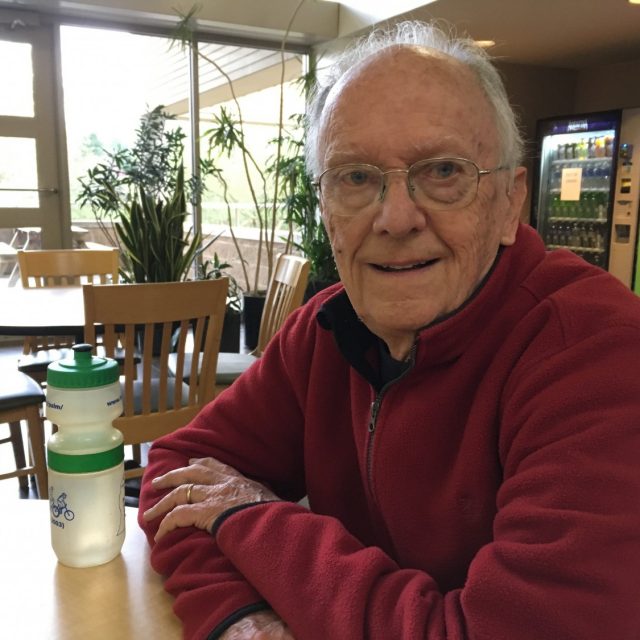
-
Noriko Barksdale
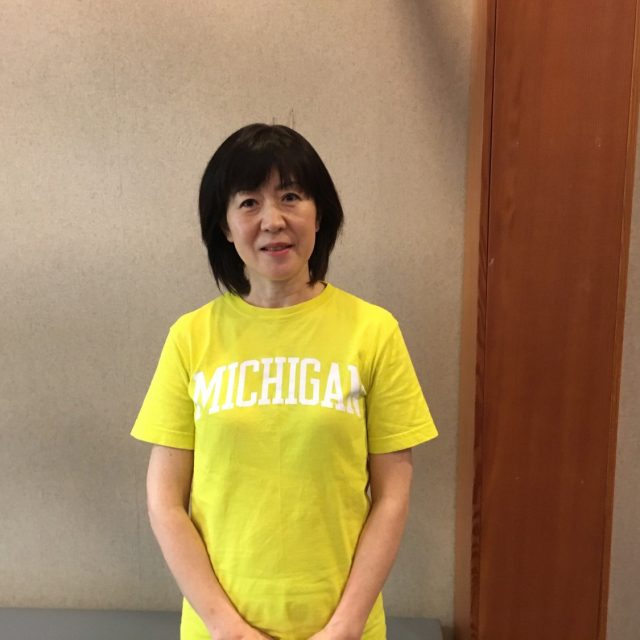
-
Tim Berla

-
Mimi Bogdasarian
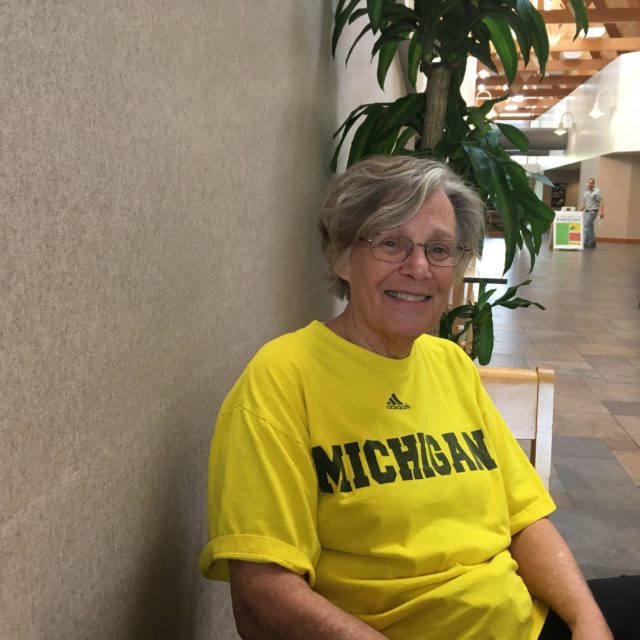
-
Tom Burroughs
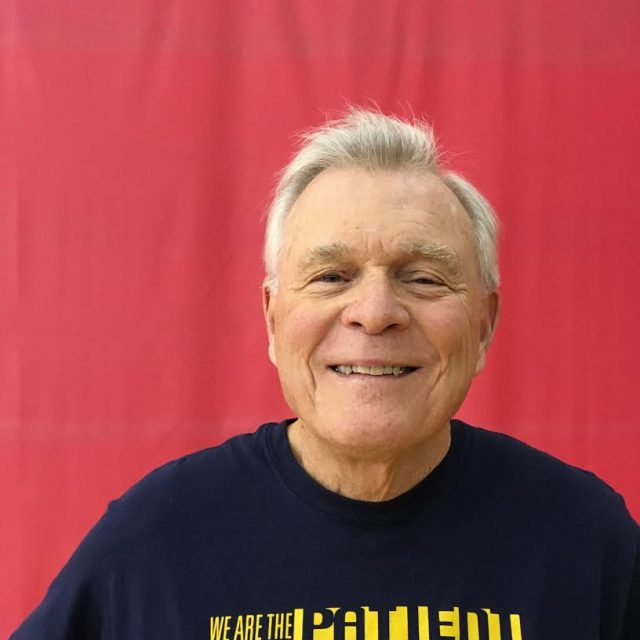
-
Liz Cline
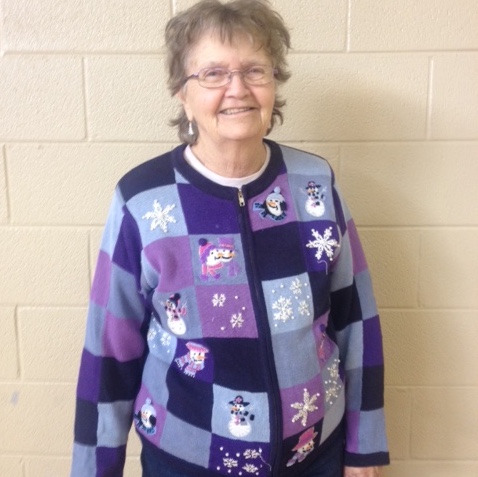
-
Yushun Cui and Taihao Quan
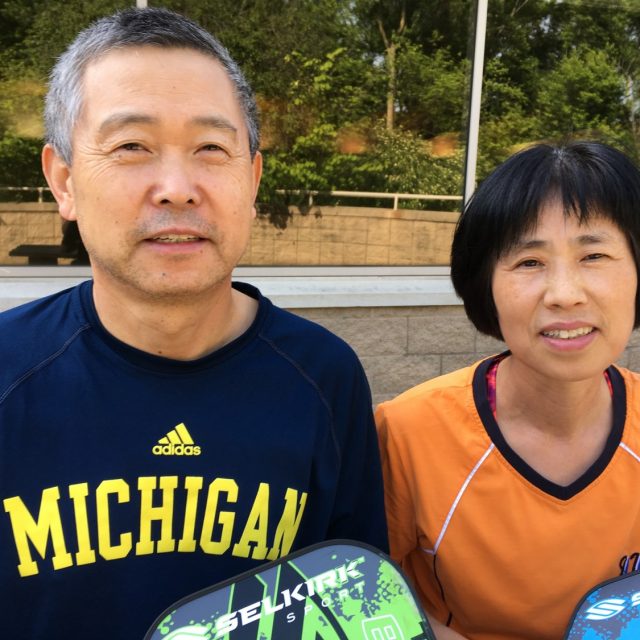
-
Ron Hoodin
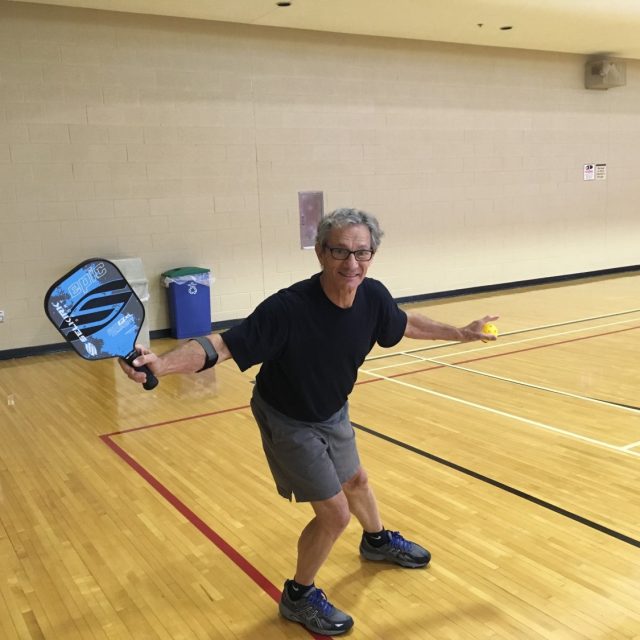
-
Mercedes Hoyl Valdes
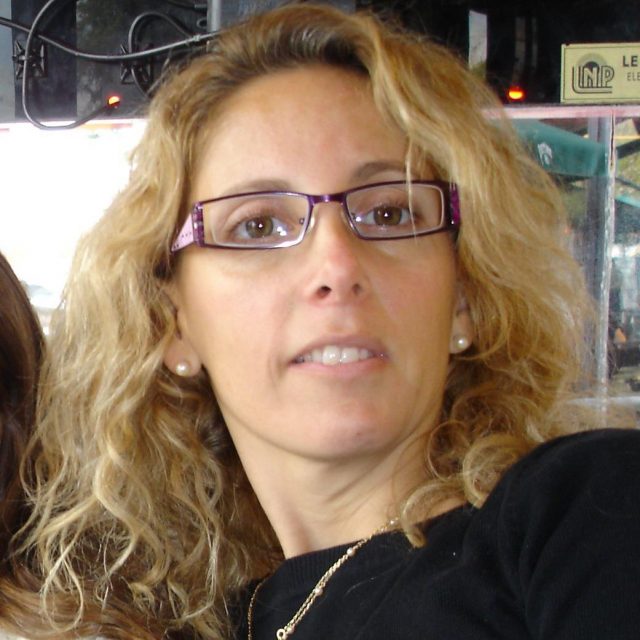
-
Eitan Jackler
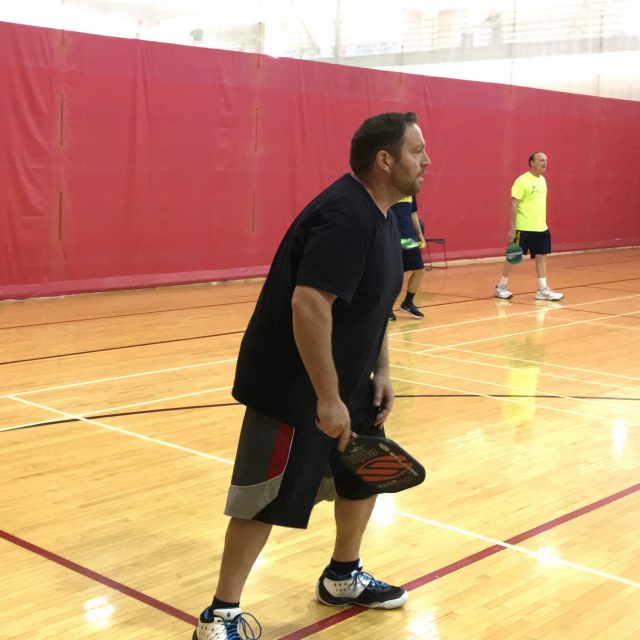
-
Jim Johnson
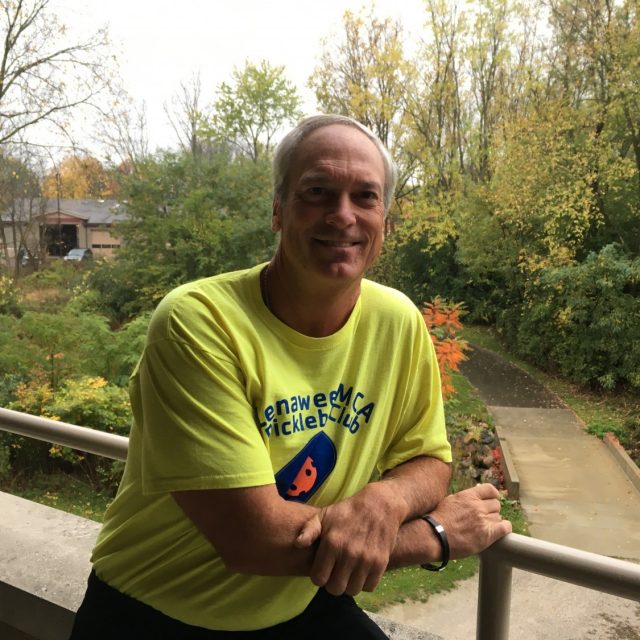
-
Barry Johnson
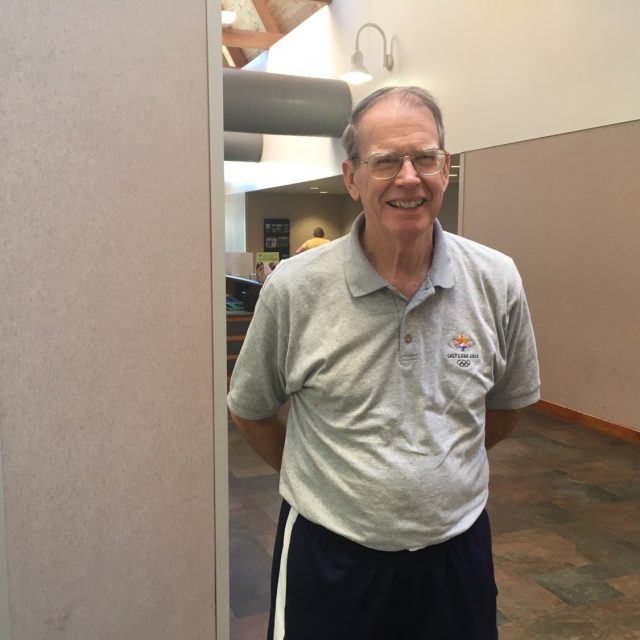
-
Joanne Kelleher
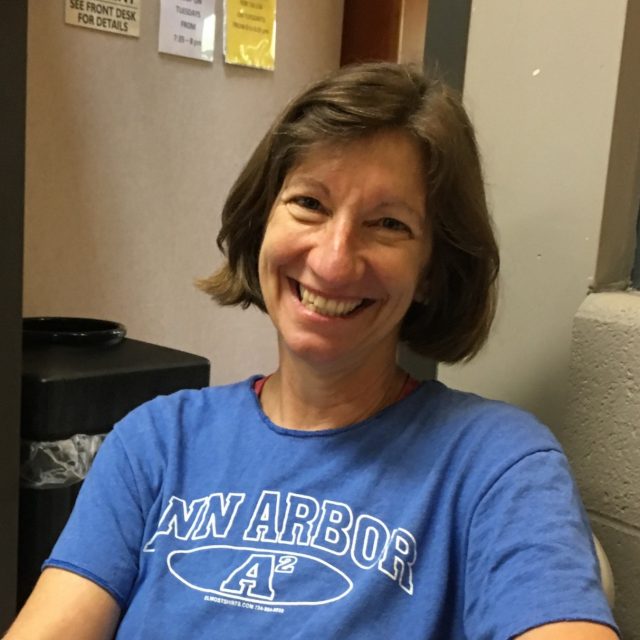
-
Rick Langford
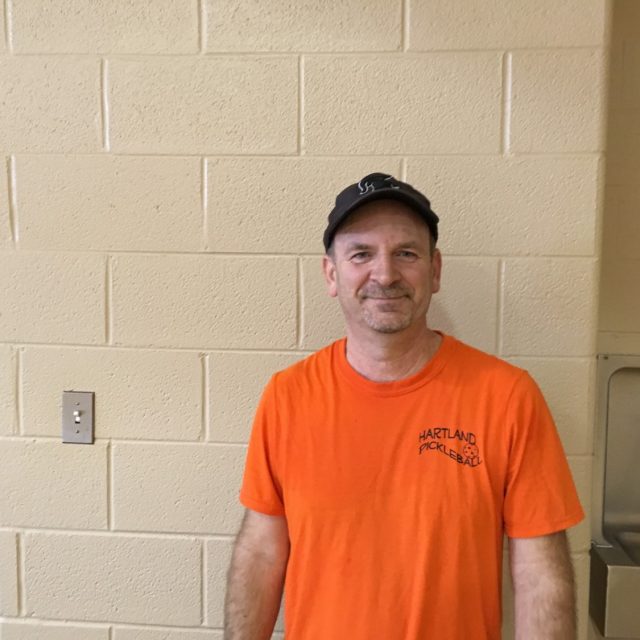
-
Nuttaya Likitchollatam
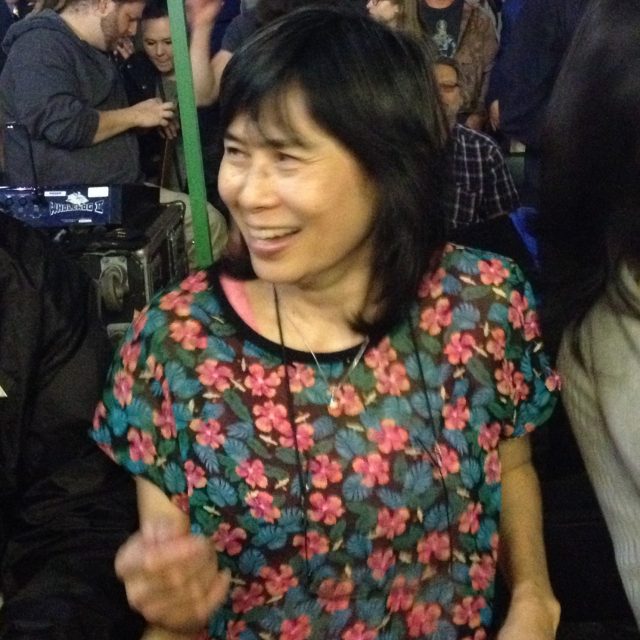
-
Marty Mangino
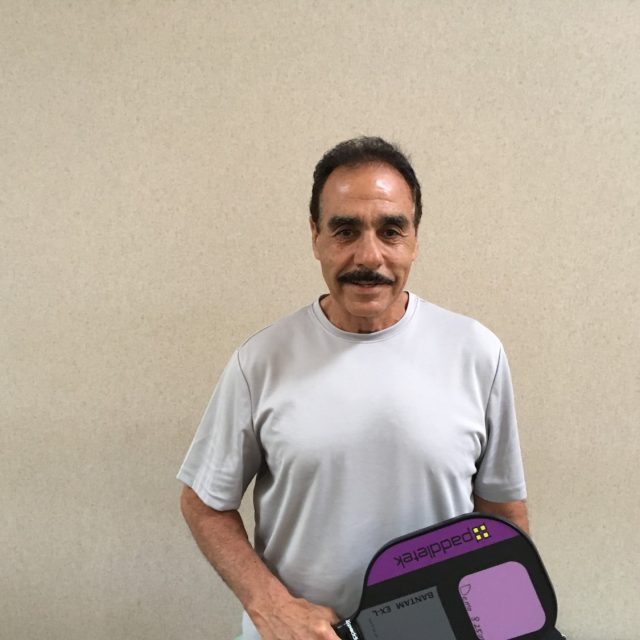
-
John Marion
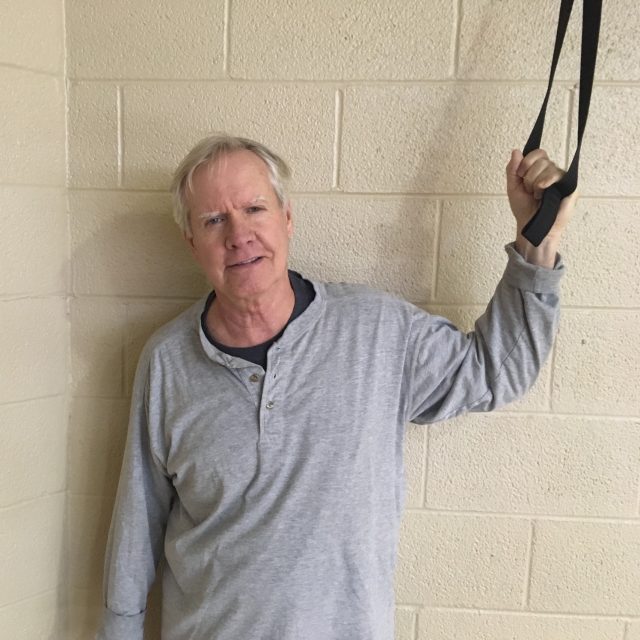
-
Wally Niemann

-
Akin Oni-Orisan
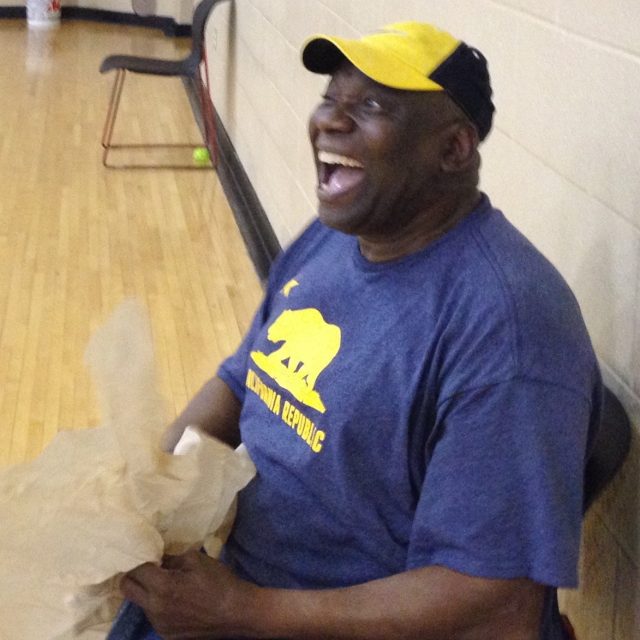
-
Ted Oslin
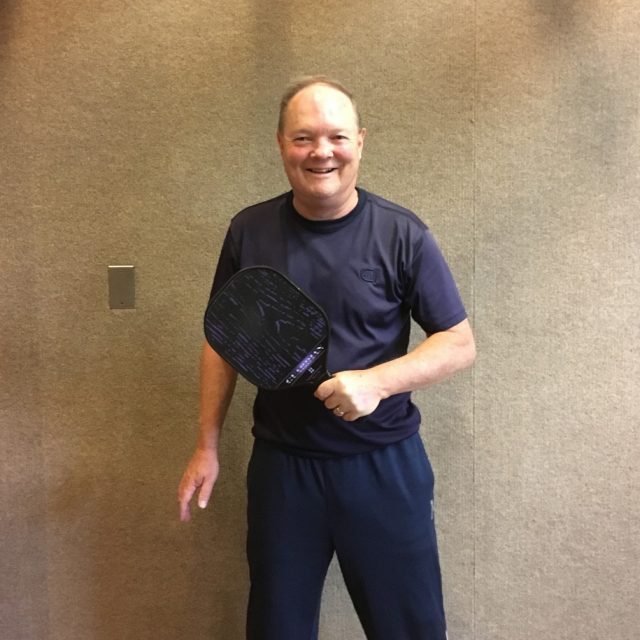
-
Kate Peterson
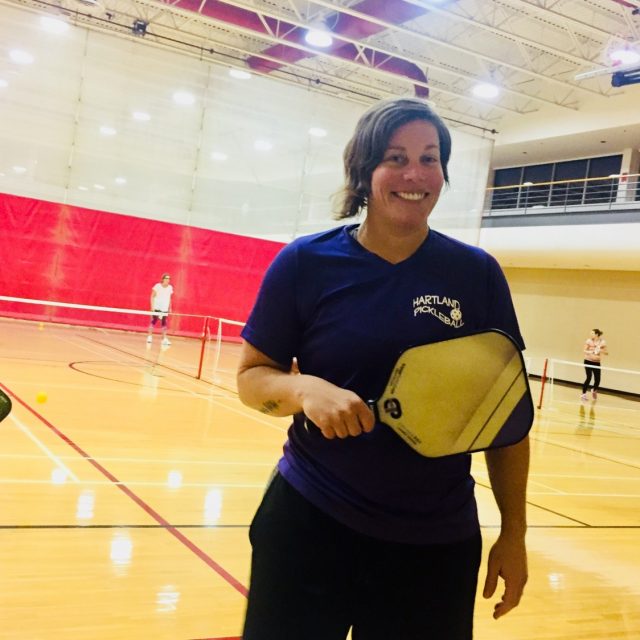
-
Carol Righi
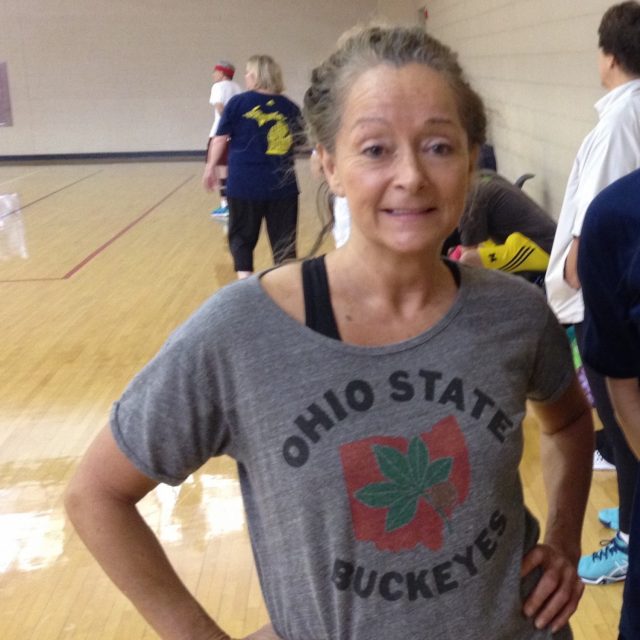
-
Sundar Rajan Selvaraj
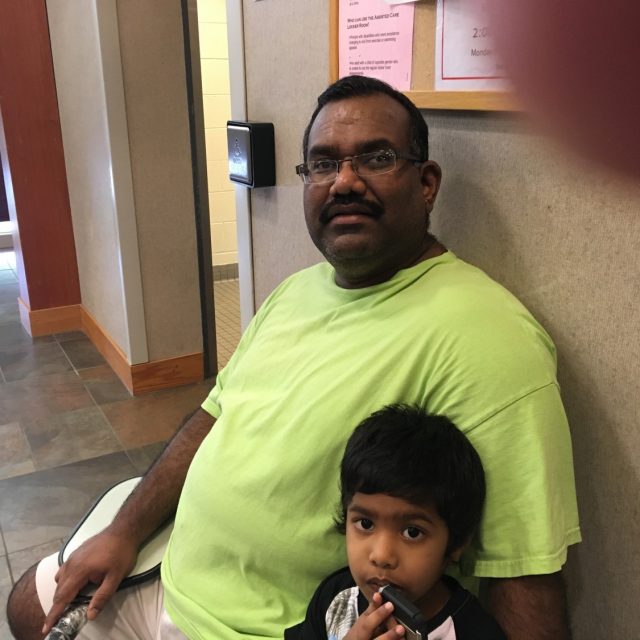
-
Jeff Shumway

-
Carol Tondreau
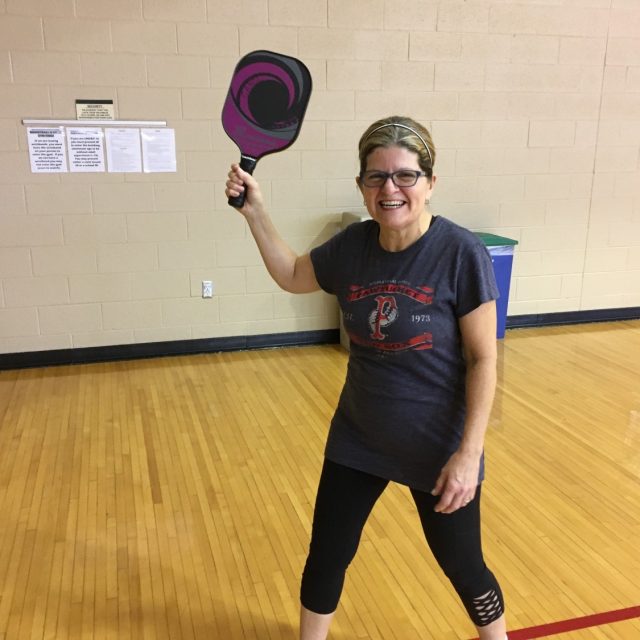
-
Bill Wen
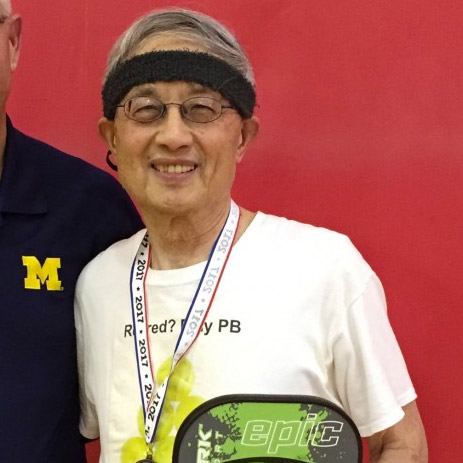
-
Lucy White
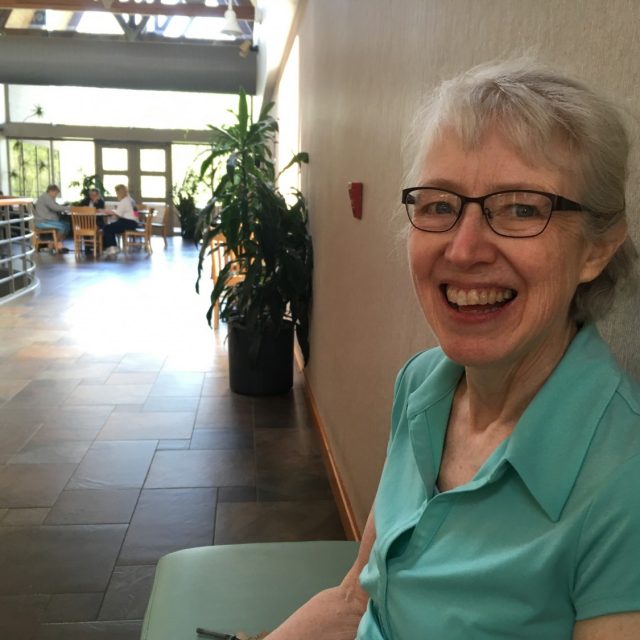
-
Mike Wylie
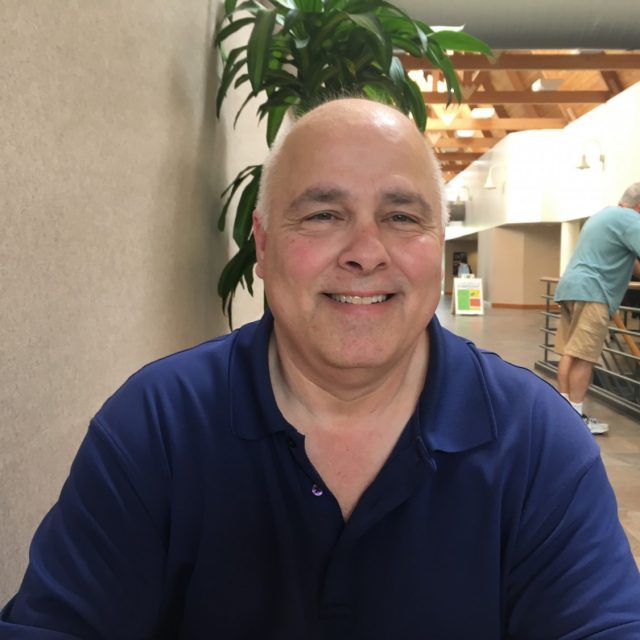
-
Lau Yang
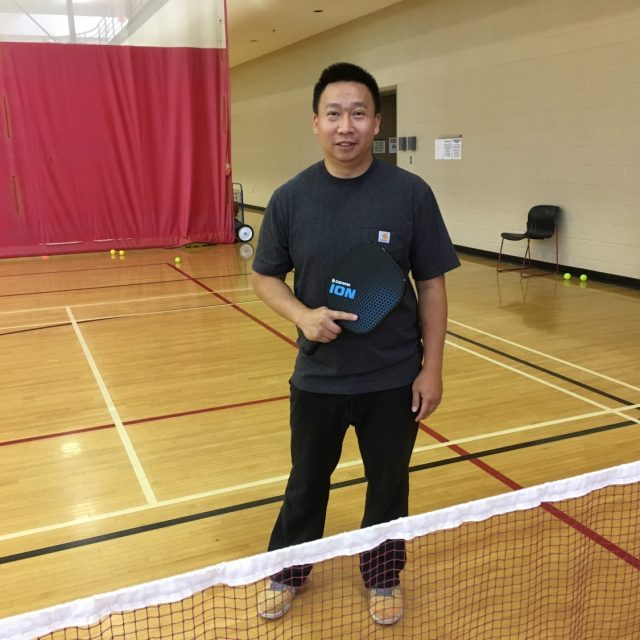

John and Leah Atwater
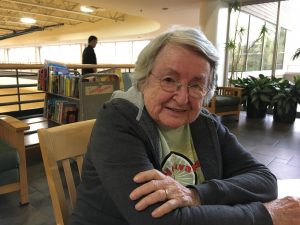
John is from Westchester County, N.Y. and Leah grew up in Midland, MI. They met as undergraduate students at Oberlin. Both are licensed pilots and have instrument ratings as well. They have traveled to 80 countries and all the lower 48. Highlights of their travels are 2 years working with the UN in Sierra Leone and 6 months in India where John was on the Medical College Faculty. They have 3 children, 9 grandchildren, and 3 great grandchildren. Leah is now 86, John is 87. John is totally deaf, but has about 50% hearing capacity with his electronic device. They most recently went on safari in Africa. Leah got her pilot’s license when she was in her 50s! John says “she is an excellent pilot!”
John was a Public Health Officer in New Haven after having earned his doctorate in public health at John Hopkins University. He also has an MD from the University of Michigan. Leah spent 14 years in the Chemistry Department at the University of Michigan where she was in charge of student services. She was also a violinist in the Ann Arbor Symphony Orchestra.
John’s father was most influential in leading him towards a career in medicine and he credits one of his professors as most influential in guiding him as a young doctor. Leah singled out Nelson Mandela as one of her most admired persons. She noted his lack of bitterness following his release from prison and his leadership in rebuilding South Africa.
Both Leah and John are former tennis players and now find pickle ball a great way to exercise while enjoying the chance to meet a variety of people. They play only about an hour at a time. John says endurance is his main challenge. Leah says getting up to the net is her biggest challenge. John has been playing now for 7 years and this is Leah’s second year of pickle ball. Both like the informality of the game and the fun it provides.

Noriko Barksdale
The American B-29 took off from the Mariana Islands in the early morning hours of August 9, 1945, headed for Kitakyushu, Japan. It was carrying an atomic bomb. Heavy clouds and dense smoke prevented the bomb from being dropped on Kitakyushu. Later that day it was dropped on Nagasaki, about 125 miles to the south. Today Kitakyushu is a model Eco-City of just under a million people, and a global pioneer in environmental health. The city is located on the island of Kyushu, the third largest island in the Japanese archipelago, with a population of more than 13 million.*
Noriko Barksdale was born in Kitakyushu where she lived for 30 years, before moving to Tokyo. There she was introduced to John Barksdale by a mutual friend. John was an Ann Arbor resident at the time. Noriko and John have been living in Ann Arbor since 2004. They have a very pretty 9 year old daughter, Chelsea, who is occasionally seen at MLM watching our games and keeping track of stray balls. Noriko is now a full-time wife and mother, but had been a pre-school teacher in Japan. John is an engineer and works in both Farmington Hills and Sterling Heights.
Noriko says she loves pickle ball because “it is just fun, but not so easy.” She and her friend, Akane, also one of our players, first noticed pickle ball after finishing a workout here at MLM. That was last August. Noriko thinks pickle ball is a good way to burn up some calories. She says, “I love food.” She likes American and Korean food but says Japanese food here is “just so-so.” Getting the right grip on the paddle, so she can hit harder shots, is what Noriko is working on now. She is strengthening her arms and wrists with weights.
Life in Ann Arbor, says Noriko, is pretty good compared to her home in Japan. She finds it much less crowded and easier to get around, but she and Chelsea make the trip back home to see the family whenever possible. Noriko is still working on her English. She says it is difficult, especially the grammar. She and her husband speak English and Japanese at home, and Chelsea is also bilingual.
When Noriko apologized to me at the end of our interview for her difficulty with English, I told her that I would try to compensate for that by speaking all the Japanese I knew. After an awkward period of silence, we went off to play more pickle ball.
To this day, justification for the bombings of Japan is still debated. It is good to have among us so many wonderful Japanese people like Noriko, whose ancestors endured the devastating effects of World War II.
Noriko says, “I hope to play pickle ball forever.” Her favorite color is pink.
*The other three major islands of Japan are Honshu (the largest), Hokkaido, and Shikoku. Japan is composed of 6,000 smaller islands, of which 430 are inhabited.

Tim Berla
Tim Berla was born in Ann Arbor and has lived there for almost his whole life. He was an organizer of and attended Community High School and was in the second graduating class.
Tim likes to write and play music. He performs with bands called Team Love, Isosceles, West Park Music Society, and the Dorkestra, among others. Tim often plays the bass and sings, and occasionally plays other instruments. Tim has written many songs, including country songs such as “No Complaints”, “There’s Something Dead On The Highway”, “To Be Mine”, and “My Wife’s Got A Boyfriend”.
Over the years, Tim has spent countless hours playing other sports in addition to Pickleball, such as Ultimate (also known as Ultimate Frisbee), Soccer, and Basketball. Tim currently plays Tennis and Volleyball.

Mimi Bogdasarian
Mimi is a former tennis player and took up pickle ball last year. She finds it much easier on the shoulder because of the lighter weight racket. And, says Mimi, not as many overhead shots in pickle ball which makes it less a problem for a sore rotator cuff.
The most challenging part of the game for her is “being in the right position” on the court, and getting set to execute a shot. She noted that in tennis getting to the net is an important skill, and she says “that’s what pickle ball is all about.”
She and her husband Ronald, a recently retired otolaryngologist, have 2 children and 6 grandchildren, four of whom reside in Ann Arbor. On days Mimi is not at pickle ball she may very well be chauffeuring her grand kids.
Mimi was a bit hesitant to say she grew up in Columbus, Ohio and graduated from OSU. I assured her she was relatively safe here in the “Athens of the Midwest”, and that most of us are enlightened people. – but that wearing her blue and gold Michigan t-shirt was a good idea.
In her “other life” Mimi has been a dental hygienist, has a Master’s from EMU, and has worked in marketing, and in out-patient management at the University of Michigan Hospital.
In her early 50s Mimi decided it was time to reinvent herself – to lose weight, start working out, and get physically fit. She began with swimming, spinning, and working with weights. She soon began doing triathlons and has now done so many, she can’t give an accurate count. This involves swimming a half mile, biking 16 miles, and running a 5K race. She says anyone who wants to challenge themselves, but not kill themselves, should do a triathlon. And walk.
On her Bucket List is a trip to Norway, where her mother’s family lived. Mimi is now 72, but was slow to come up with the number – simply because she doesn’t think much about how old she is. She said she was born in 1944, that was certain. Together we were able to actually figure it out. These interviews always have unexpected challenges.
Thinking about a most admired person, Mimi described Barack Obama as being a wonderful person.

Tom Burroughs
Tom grew up on Detroit’s east side. After graduating from Grosse Pointe High School he attended both Western Michigan University and Eastern Michigan University. He worked in Detroit and St. Louis in advertising and marketing before becoming a high school teacher and counselor. His work as an educator began at Royal Oak Kimball High School. He retired from Ann Arbor Public Schools in 1999 after working at Huron, Pioneer, and Community High Schools over a 29 year span.
Since 1999, Tom has worked for the University of Michigan Department of Undergraduate Admissions and for Greenhills School. He has also been a volunteer at the University of Michigan Hospital for several years.
Pickle ball has become a great way to exercise, but also an opportunity to meet interesting people. Tom has especially enjoyed writing player profiles. He says “it is always enlightening to talk with people about their lives and interests. Everybody I’ve interviewed has a story to tell.”

Liz Cline
A Buick dealer in Monroe gave Liz her first real job, without even an interview. She had just turned 16 and her dad, who owned the dealership, asked if she wanted a job. Liz promptly said “No.” He promptly responded, “well, you’ve got one, be here at 4 o’clock.” From that day until she graduated from high school, Liz worked in the parts department. After two years at Mott Junior College, Liz transferred to Western and got her degree with a major in elementary education.
Just before graduating from Western, while attending the Thanksgiving Parade in Monroe, Liz met the father of a friend of hers. He asked Liz what she was doing, and when she responded that she was about to graduate in elementary education, he said “well, you’ve got a job.” He was an elementary school principal in Monroe.
We all know Llz to be friendly and personable. But, come on, two jobs without even having to interview?
Liz began her teaching career, got married, and gave birth to her daughter Susie. Her husband , who was involved in “a terrible accident” shortly after they were married, died when Susie was 18. He was the first successful lung transplant at the University of Michigan. Liz eventually remarried and she and Susie took up residence on her new husband’s farm near Milan. Liz and Susie quickly grew to love farm life. Susie still lives on the farm.
The origin of pickle ball at Merry Lou Murray Recreation Center (MLM) is still uncertain. We have to hear more about this from Bill Wen and others. But Liz says she was one of the first people to play at MLM. After moving here from Milan in 2007, Liz did not know anybody, but says that she soon met, through pickle ball, “all kinds of great people,” many of whom have become part of her social life as well.
Without hesitation, Liz says her dad was the most influential person in her life. He played tackle for the University of Michigan football team, and actually kicked the winning field goal against Minnesota in 1933, and he wasn’t even a kicker. He was given the game ball and, of course, the Little Brown Jug remained in Ann Arbor.* One of his team mates that year was a guy named Gerry Ford. Liz has been a life- long Wolverine fan and has attended games since she was old enough to walk. She says her dad taught her all the right values – mainly to be honest and to always value the importance of family and friends. She is now busy with friends and grandchildren and says “I love life. Every morning I wake up and I’m glad I’m here.”
The most challenging thing about pickle ball for Liz is “making my feet move.” Can we all relate to that?
One thing on her Bucket List was recently fulfilled when Liz went on a cruise through the inland passage to Alaska and had a chance to do some kayaking on the way. She describes the scenery as spectacular.
Liz says she is “adventurous…. a little bit.” She did, however, say she would turn down an offer to be on the first round-trip rocket to Mars. Although she did allow that it would “probably be fun.” Liz is now “77 and a half.”
* Liz recalls the year as being 1933. And, yes, the Wolverines did play in the Big House in the 30s. The Michigan Stadium was built in 1927, seating capacity 72,000.

Yushun Cui and Taihao Quan
Give some thought to Taihao if you have ever had skin cancer, or if you’re just out there enjoying the sun. You may need him some day. And give some thought to Yushun when your car steering responds quickly to an emergency. The work she is doing makes that possible.
Yushun and Taihao were born in the city of Yanji, Jilin Province, China. It is just west of the northern-most tip of North Korea and the Russian border. China has the 4th largest land area in the world (can you name the first three countries?)*** Yanji is much farther from Shanghai (920 miles to the south) than it is from Vladivostok, Russia (120 miles to the east). Today Yanji is a city of about 400,000 people.
Taihao is a medical doctor. Yushun is a design engineer. The couple met as undergraduates in China, and were married in 1983. After earning his M.D. in China, both Taihao and Yushin earned Ph.D. degrees in Japan where they lived for several years. Yushun and Taihao have a 25 year-old daughter, Hehui Quan, who was born and educated in Japan before coming to the United States in 4th grade. She graduated from the University of Michigan and is now doing graduate work in Medical Sciences at Drexel University in Philadelphia. Both Yushun and Taihao have siblings who live in China.
At home, Yushun and Taihao’s common language is Japanese because their daughter speaks only Japanese and English. Yushin and Taihao are considered Korean-Chinese because Tai Hao’s father was born in Pusan and Yushun’s grandparents were also born in Korea. Therefore, they actually speak 4 languages: Chinese, Korean, Japanese, and English. They both say that they really do not care about which one is used as the primary language when they talk to one another. In most cases they speak in mixed languages. Taihao says, “ Sometimes, I don’t know what language I’m speaking, I just go.” But both say it seems to work out just fine.
Regarding the United States as “the best place to do research,” Taihao came here to do a 3 year post doctoral program at Wayne State University, then came to the University of Michigan where he is now doing skin cancer research. More specifically, Taihao’s work involves analyzing skin tissue taken from biopsies for the purpose of determining why cancers occur, particularly in older people. And he is currently working on a second book. His first book is entitled “ Molecular Mechanisms of Skin Aging and Age-Related Diseases.” He explains that skin damage can occur within a half hour of exposure to UVA rays when the sun is hottest, around noon. He also explained that there is a DNA mechanism that repairs skin damage, but sun exposure over a long period of time, cannot be offset completely. He says “nobody gets skin cancer in one day.” Residual damage remains and is cumulative.
Taihao describes his father, a medical doctor, as being interested in very little else other than treating his patients. He played no sports, had no hobbies, He was a role model of dedication to hard work. Norman Bethune, the famed Canadian physician, was also an important influence in Taihao’s life. Bethune, a noted anti-fascist and frontline surgeon went to China during the Japanese invasion of China (1937-41)** There he created medical surgery teams to aid wounded soldiers OF BOTH SIDES as well as villagers injured and sickened by chemical warfare. Dr. Bethune effectively brought modern medicine to rural China and is one of the few Westerners to whom China has dedicated statues, of which many have been erected in his honor throughout the country. He is buried in the Revolutionary Martyrs’ Cemetery, located in Shijiazhuang, Hebei Province, China. The Norman Bethune University of Medical Sciences is located in Jilin province and Taihao got his M.D. at this university.
Yushun is employed by JTEKT North America Corporation, a Japanese-based company which employs 44,000 people world-wide. Her office is in Plymouth. The company is a world leader in the bearing industry and in technological innovations regarding drive line and steering components designed to provide reliable and superior vehicle performance. Yushun’s work centers on the design of bearings ranging in size from seven meters down to three millimeters.
Yushun”s father was also a doctor and professor, but she speaks of her mother, an elementary school teacher and later a principal, as the most influential person in her life. She says her mother never ceased stressing the importance of education, both in school and at home.
The type of work Yushun and Taihao are engaged in is somewhat stressful. Both describe working a good part of their days on computers. Yushun first discovered pickle ball and began playing in 2012. About 6 months later, Taihao’s curiosity finally got the better of him. He had been asking Yushun, “what is this game you’re playing that is so exciting and fun.” One day he came to MLM with Yushun to find out. They both now regard pickle ball as the perfect solution to relieving the stresses of work. Both say the exercise is great and much needed, but Yushun makes the point, “My mind is free. I don’t think of anything while I’m playing pickle ball. It’s very good.”
As for the most challenging part of the game? Yushun and Taihao have a basic disagreement. Yushun says the most difficult thing for her is “playing with very good players” – because they make her a little nervous. She worries that she may not keep up to their level. And, she likes to win! Taihao, however, says “I like to play with very good players. It’s a challenge.” Taihao has been a soccer player, and Yushun has played badminton and volley ball – but now pickle ball is what they most enjoy.
Taihao is 61, Yushun is 60.
**Japan’s occupation of China officially ended in 1945 with the end of World War II.
*** 1) Russia, 2) Canada, 3) United States (first 3 countries in land area)

Ron Hoodin
Ron’s a native of Paris. That’s Paris, Texas.
Professor Ron Hoodin has been retired from Eastern Michigan University for 3 years after a 26 year tenure there. Ron had been an avid racquet ball player until sciatica sidelined him. While walking on the track at MLM one day he took notice of the pickle ball players who seemed to be having lots of fun. Soon after that Ron noticed Bill Wen on one of the courts by himself. He went down and asked Bill if he could hit some balls with him and, as he puts it, “the rest was history.” Yet another convert recruited by the “Ambassador of Ann Arbor Pickle Ball.”
Ron thinks pickle ball is the ideal sport for him because he can work out without being aware that he’s actually working out. It’s just a cool game to play – and so much fun because of the great people. The main challenge for Ron is to keep in mind that the game requires patience ,and that it is important to learn not to hit the ball too hard. Those are the shots that go astray.
Ron and his wife, Flora, were hoping to find jobs at universities that were in close proximity, and when EMU came up with an offer for both of them, that sealed the deal. Flora has a Ph.D. in psychology from Wayne State University. He has a Ph.D. from Penn State in speech pathology. Both taught at Eastern and their two sons both attended EMU. As Ron puts it, “for a few years, EMU was infested with Hoodins.” But, he adds, it’s a great university. He has enjoyed his colleagues and he describes the students as “spectacular people.”
Ron was drawn to the field of speech pathology because he realized there were basically two things that interested him – being in helping relationships and enjoying language with all of its nuances. He explains that speech is movement to make sound, while language is more cognitive. It is how one formulates what one wishes to say. In addition there is an area he refers to as communication skills, in essence, the ability to use both speech and language to effectively convey to others what we are thinking. And, as we all have learned, our communication skills can be an enormous asset or a significant deficit in how effectively we present ourselves to others. Ron says it is a real challenge to correct difficulties in any of these three areas.
Ron’s recreational interest, other than pickle ball, is sailing. He owns a boat and tries to sail 2-3 times a week. He describes the Caribbean as “an absolute paradise” and hopes to spend as much time there as possible. He has an arrangement to charter a boat in Tortola in January, but believes that may be cancelled because of the damage done by the recent hurricanes.
Ron Hoodin is 74 years old.

Mercedes Hoyl Valdes
Mercedes is now a 4 year veteran of the pickle ball wars. She says it is like “playing paddles at the beach” – something done in her native Chile. Mercedes was born and raised in Santiago, the Chilean capital. It is one of the largest cities in the Americas with a population of over 6 million people. There she attended a private Catholic School, earned a degree in Business Administration, worked two and half years in business – at a bank and an insurance company. While dancing at a disco, she met a gentlemen named Felipe. They married after dating for 3 years.
After being awarded a Ph.D. from the Wharton School of Business, Felipe took a job in Fontainbleau, France where he and Mercedes lived for two years. They have now lived in Ann Arbor with their 13 year old daughter for the past 6 years. Felipe is a professor in the School of Business at the University of Michigan. The most influential person in Mercedes’ life has been her mother, who still lives in Santiago. Her father died when she was just 14.
What Mercedes most likes about pickle ball, and about Ann Arbor as well, is the enormous diversity – so many people of different backgrounds and ages. She says the most difficult thing in pickle ball is losing. She really likes to win!
I neglected to ask Mercedes about the creative work she does. I know she’s involved in various work of an artistic nature. (this omission is the fault of my producer)
Mercedes is 45 years old, and thinks she and her family are too busy – and maybe too young – to be considering a Bucket List just yet. Her favorite color is white. She says she could be happy wearing white every day.
Footnote: My technician (someone who looks and sounds a lot like me) managed to erase part of the Mercedes tape. So, that aspect of Mercedes’ life is lost to an entire generation of pickle ball players. I am in need of a more competent technical staff.

Eitan Jackler
Eitan Jackler
What do pickle ball and “Game of Thrones” have in common? Eitan uses the analogy to describe pickle ball as the “most addicting game” he’s ever played. One game (or episode of Thrones) and you are hooked. He first experienced pickle ball as part of a Lifetime Sports class at Berkley High School in 1998. At the time, he was an avid basketball player and continued to be one for several years. But back problems and the physical stress of basketball brought Eitan back to pickle ball and it has become his number 1 sport. In addition to playing here in Ann Arbor he’s also competing against some of the best younger players in the area at places like the Ann Arbor Y and Royal Oak. But he says Ann Arbor has a reputation now for having a good coalition of players, and that the level of play here at MLM has greatly advanced since he began playing here a little over 3 years ago.
When Eitan started playing the game seriously after arriving in Ann Arbor, he says what made it difficult was “playing the game the wrong way for about a year or so.” He was a slammer. He could hit it hard and got by, winning over less proficient players. But, as he began playing against “better players” he realized he had to play the “small game,” – that is learn to play at the net and dink and to learn how to hit the 3rd shot drop down, which is probably the hardest thing to do. He would advise any beginning player to learn how to play the game “the right way” if they really want to get good at the game. He stresses that hard shots are easily returned by good players. He explains the 3rd shot drop down as the “greatest equalizer” in the game, and compares to the 3 pointer in basketball. He says, ‘that’s why they have the kitchen.” He thinks the lob shot has a 50-50 success rate at best, against good players. He adds, “I think it can be effective when everyone is dinking, and it’s not advertised. That’s when it’s most effective.”
Pickle ball is “the most fun sport I’ve ever played,” says Eitan. He says, “It’s very addictive and very social. Getting to know the people is one of the greatest things about the game.” Eitan then brought up a bias that he sees in the game, and that is the tendency for higher level players to avoid playing with people below their level of play. He understands this and concedes that even he wants to play several games with players at his own level. But, he says there is a “better way” to handle this situation. The top players should look at the game as a give and take between bettering their own games through competition, and also looking at their own roles in helping others learn the game by engaging in matches with less competent players – giving them a chance to learn and to improve their games.
Eitan says he has been most positively influenced in life by his younger brother and his wife. He says “I always wanted to do things for my brother, and that brought a lot of fulfillment to me.” He gives his wife credit for a lot of things that have made him a better person. He says that she told him that he “waited way too long to propose to her” – 2 and half years. They have been happily married for 5 years and are hoping to have children soon.
Eitan loves the outdoors, not in a hunting/fishing way, but experiencing the beauty of it. He’s seen all the national parks in Utah, mentions the vast beauty of the American West and the inspiration of the oceans. He hopes to see, among other places, Hawaii.
Eitan was born on a kibbutz in Israel, where he lived the first 10 years of his life. He believes the experience taught him a degree of self-reliance and a good work ethic. He says he was making “good money” at age 16 working in construction, and continued that work after graduating from high school. He has owned his construction company for the past 6 years
Eitan says, “It’s pretty special. It’s amazing how fast I was able to make friends through the game of pickleball.”

Jim Johnson
Partners are important if you want to play the game well. Both in pickle ball and in life. This idea reflects the insight of Jim Johnson. He has lived a varied life and is currently pursuing, as he puts it, “three different careers.” He has been a realtor since 1986, is a certified tennis professional and head tennis coach at Ypsilanti Lincoln High School, and is also a material transport courier at St. Joe’s Hospital where he is responsible for getting drugs and various medical supplies to their proper destinations.
Jim grew up in Adrian, Michigan where his parents still reside. After graduating high school in 1976, he attended Michigan State University where he barely missed winning a slot on the varsity tennis team after losing the finals of a freshman tournament. He ended up leaving MSU, earned a degree in business at Sienna Heights University in 1982, and then got his professional tennis certificate at the USPTA in Chevy Chase, Maryland. Over the next three years he worked as an instructor at tennis clubs in Nebraska and North Carolina and, later as head coach at Sienna Heights University and Adrian High School.
Although Jim worked 10 years for General Motors in Adrian, he really maintained “a life in tennis.” He has taught people of all ages and abilities. Since he began playing pickle ball just three and a half years ago he has won several medals, including two bronze and one gold in our MLM tournaments. Jim says he is now interested in coaching pickle ball, should the opportunity ever arise. He is currently in the running for a job at Huron High School as a para-pro or special education assistant with the hope that it might lead to coaching tennis. He says when you are working with beginning players as he was at Adrian and now at Lincoln, “you’re teaching more fundamentals rather than coaching. But, at Huron, where there has been a long-established tennis program, there would be an opportunity to do some real coaching.”
Jim says he enjoys playing competitive pickle ball, but concedes “I feel I haven’t taken the time to give back to this game. I have a passion for the idea of teaching people to play pickle ball, but I also like to play to win. While it’s important to play with everybody, this means having the patience to play with less skilled players which can be frustrating – because you don’t want to sit too long.” But Jim says “I don’t want people to misperceive me. I want to be liked, I’m a happy-go-lucky guy, but I’m afraid some people mistake my humor (wit) the wrong way. Sometimes I’m just out there having fun, doing some crazy stuff. It helps me enjoy the game.”
So the next time you get paired up with Jim, let him know that he should get serious and do his best because you are an aspiring competitive player. Or you might just go along with his his wit. He’d like that too. He really does want you to like him. Just know that he is a genuinely good guy who comes across in different ways at different times and that he means no harm or offense. Haven’t we all been there at times?
Jim’s advice to beginning players is to first decide whether they are just out there to have some fun or out there to be competitive. As he says, four people who just want to have fun playing can have some great matches. But, if the truly competitive and the “fun players” get mixed together it can be a frustrating experience for everyone. Jim feels that if you are playing to be competitive you should “take it slow and learn the different facets of the game because there are so many things – the serve, the lob, the drop shot, the net play.” He says, watch good players. And he says “athletic ability is a big factor – coordination, foot movement, getting to the right spot to accept the ball, knowing when to charge the net, and learning to mesh with your partner.” He says, ” I love the strategy part. It’s all about finesse. If you have a partner who may not be as good, you know they are going to play that partner. So then you get into the mind frame. You think, are we out here just having fun or trying to win? Is it a social setting or a tournament? But it’s all about communication with your partner, no matter what. You have to cover each other and know how your partner plays, know what to expect.”
Jim’s says the first thing on his bucket list is “finding a compatible partner to spend the rest of my life with, preferably someone who enjoys sports and playing pickle ball.” Dating, he says, “is a more remote thing at a certain age. It can be problematical. It can be lonely out there, and I’m not one to just be alone. It’s fun to do things together.” He also says he’d like to play in the nationals in Naples, Florida.
So, yes, the “right partner” is important – in pickle ball and in life.” Imagine, learning about how your partner does things, working together, communicating – on and off the court. A good plan? Hmmm.
Jim Johnson is 59 years old.
P.S. Thanks to Ted Oslin for correcting my spelling of Meri Lou Murray’s name. I appreciate it. I think it evolved from Mary Lou Smith to Mary Lou Murray before I heard from Ted. My editor has been terminated.
Barry Johnson
Prostitutes instead of fresh water. Then golf club-toting helicopters. All a part of Barry Johnson’s experience with a U.S. Army M*A*S*H unit in Korea. He arrived there in June, 1964 – the youngest Second Lieutenant in Korea. Some of the shady adventures Hawk Eye, Klinger and company were portraying on the hit show “M*A*S*H” were not far off the mark. MASH stands for “Mobile Army Surgical Hospital.” The show ran from 1972 to 1983 and the last episode was the most-watched in TV history.
But, by no means, was duty in Korea a lark. Even though the war had ended in 1953, South Korea was still threatened by invasion from North Korea, backed by China and Russia. The United Nations had taken charge of the defense of South Korea, but troops were largely from the United States. There was also civil unrest due to political turmoil. The South Korean president had been overthrown in 1960. Barry describes it as a very tense time. There were machine gun nests in the streets of the capital as young people were protesting the election of a new president, Park Chung-hee. Barry had occasion to attend a reception at which he met the new president.
**(The Korean War is referred to as “the forgotten war” as not much attention was paid to it by U.S. media. In fact, President Truman referred to it as a “police action” rather than a war. But there was always fear of a wider war, one that would involve China and Russia. But the fact remains that almost 5 million people died, more than half of them civilians. Forty thousand American military were killed.)
In Barry’s words, “the Korean people were very thankful for what the Americans had done for them.” He says that whenever he traveled on public transportation, someone would pay for his fare. When he would ask who paid the fare, the response was always, “it’s our tradition.” Barry said that when he would be walking in and around Seoul, the capital of South Korea, “young Koreans would walk with me to practice their English.”
Barry is one of the group we think of as “the originators” of Merry Lou Murray pickle ball. He remembers seeing a few people having fun playing an interesting looking game. A few days later he saw Bill Wen alone on one of the courts and asked if he could hit some balls with him.
He quickly took to the game and has continued playing for the exercise and the enjoyment of the people who play here at MLM. Barry has also maintained his life-long interest in tennis and still plays twice a week.
Dormant, Pennsylvania, a suburb of Pittsburgh, is where Barry was born and raised. He participated in baseball, football, track, and basketball in high school. At Bucknell University where he earned a degree in civil engineering he participated in track and soccer. Bucknell is a small liberal arts college located in Lewisburg, Pennsylvania. It’s conveniently located about three hours from New York, Washington, and Philadelphia.
Barry met his future wife, Leslie, while they were both in grade school. He says it took him a long time to get a date with her because she was always busy. In fact, it took him several years to get on her social schedule. After graduating from college in 1963 Barry made another call just to say “hi,” His long-term quest to get a date with Leslie finally paid off. This time she was available! But Barry wasn’t. He was scheduled to ship out to Korea. So, a long-distance relationship was established.
While in Korea, Barry was able to put his engineering education to good use. His job was to insure a continuing supply of potable water for the southern area of Korea. He had been assigned to a MASH unit near Seoul.
A couple of stories Barry related are reminiscent of the M*A*S*H TV series. He describes being on duty on a Saturday night and receiving a call from an MP who was assigned to a check-point where water carrying tankers were stopped. The chlorine content was to be checked to make sure that the good water had not been sold somewhere along the route and river water substituted. When the MP told Barry that there was “NO water coming out of the tank,” Barry ordered the MP to open the tank to see what was inside. The MP reported that the tank was full of prostitutes. Barry replied “I don’t think the water’s safe.”
On another night, Barry’s unit was notified that there were “incoming helicopters” and to “get some jeeps ready.” His first thought was that wounded personnel were being flown in because the base did have a hospital and a helicopter pad – or that maybe they were going to have to evacuate. But, as the helicopters landed, and the jeeps were positioned and ready to roll – to everyone’s dismay, the helicopters landed and disgorged a general and a couple of colonels WITH THEIR GOLF CLUBS! Just trying to make the best out of fighting a war.
In June, 1965, now First Lieutenant Barry Johnson had orders to return to the United States because he had completed a “hardship tour” and he was free to choose where he would like to be stationed for the remainder of his active duty. He chose either California or Pennsylvania. So where did the Army send him? Fort Campbell, Kentucky where he was assigned to the 101st Airborne, then commanded by General William Westmoreland. Was there ever “free choice” in the Army? Leslie found a teaching job at Fort Campbell, and after Barry completed active duty a year or so later they moved to New Jersey. There Leslie found another teaching job and Barry completed a MS in Sanitary Engineering at Rutgers.
By now Barry decided he wanted to put to good use the things he learned and implemented in Korea – that infectious disease was minimized and general health was improved because of good waste disposal and good drinking water.
After attending a meeting of the American Public Health Association in Miami, Barry learned of a job opening in Ann Arbor. He soon found himself working under the direction of Dr. John Atwater who was then the Chief Health Officer. We all know John and Leah Atwater who are regular pickle ball players here at MLM.
Barry continued his work in Ann Arbor until 1995 when he took a job with a Detroit firm that had received a huge federal grant to clean up the highly-polluted Rouge River. The project resulted in one billion gallons of raw sewage being eliminated from the river.
So, Barry’s life has been one of the pursuit and application of knowledge for the betterment of people everywhere. And the long and successful pursuit of the elusive Leslie must be recognized as well. Great dedication on both counts!
Barry and Leslie have two adopted adult children, Dwight 46, and Suzanne, 43. We all know Dwight as a hard-hitting pickle ball player. He is currently a disc jockey doing weddings, parties, and a regular Friday night gig near Southfield. He also works with the kids at Peace Neighborhood Center. Suzanne is a marketing executive with an Ypsilanti company that prints lottery tickets for several states and also for France.
Since retiring in 2005, Barry and Leslie have been enjoying travel, typically a trip in Spring and Fall. Ask Barry about his and Leslie’s misadventure in Glacier National Park last September and their hurried departure from the Prince of Wales Hotel.
Barry Johnson has three brothers. He and two of his brothers have celebrated 50th wedding anniversaries!
Barry Johnson is 76.

Joanne Kelleher
A past environmental education camp counselor. A retired Spanish teacher of 29 years in both private and public high schools as well as college. Currently a mentor for Spanish teachers in Detroit who are working for Teach for America, as well as a teacher of meditation at the Huron Valley Women’s Prison. An enthusiastic player of games of all kinds. A birder. A “total cat person.” A cyclist who once peddled around the perimeter of the United States, visiting 28 states and one Canadian province in all. The wife of Brad Zebrack, and mother of 14 year old Sierra Kelleher, resident of Ann Arbor and enthusiastic pickle ball player. That about sums it up for Joanne. Except for the rest of her story.
While working at an environmental education camp in Sebastopol, California, Joanne met another counselor, Brad Zebrack. Joanne had grown up in Berkeley, and graduated from UCBerkeley and Brad was from Los Angeles, a graduate of UCLA. After working closely together at the camp for 9 months, Brad invited Joanne to spend the Thanksgiving holiday with him and his family in Los Angeles. A wonderful holiday visit, however, turned bleak when a lump on Brad’s throat was biopsied and it turned out to be Hodgkins Disease, essentially a cancer of the lymph system. With this news, Brad remained in L.A. to begin treatment while Joanne returned to Berkeley. But their relationship continued and grew stronger over the 11 months Brad was undergoing chemotherapy. Joanne flew or drove to Los Angeles many times to be with Brad and his family, they spoke often on the phone and they wrote each other long letters.
When Brad returned to Berkeley to recover from the 11 months of treatment and resume his job at the environmental education camp, he and Joanne discussed the idea that if Brad could take a year out of his life to recover from cancer, then he might also be able to afford a year off to actually do something he loved to do. So Brad and Joanne planned a bike trip around the United States, literally around it. They got sponsorship from the National Coalition for Cancer Survivorship (NCCS,) speaking dates were arranged at cancer centers and hospitals, and off they went carrying between the two bikes about 110 pounds of gear. They averaged 50 miles a day, and were on the road for one year and two weeks. They spent the summer in the Northwest, fall in the Northeast, winter in the Southeast (52 days in Florida including all the way to Key West), and spring in the Southwest.
Joanne and Brad raised over $25,000 for NCCS, spoke to enthusiastic audiences made up largely of health care professionals (nurses, social workers) and, significantly, large numbers of young cancer patients and their families, all the while peddling most of the day, sleeping in backyards when invited, camp grounds, fire station lawns. They even spent one night in a Louisiana jail. They found the majority of people to be very welcoming and interested in their unique odyssey.
The bike trip was much more than just a bike trip. The essential message of the presentations Joanne and Brad gave was about survivorship. This was 1989, and it was then a relatively new concept. Most people at that time tended to regard cancer as a “death sentence.” Part of the goal of the trip was to meet young cancer patients and their caretakers, and to talk about how Brad had survived his cancer AND the treatment, and about Joanne’s role as a caregiver, and how she learned to cope with the stress and hardships that come with that task.
During the time Brad was recovering he had been struck by the absence of young people in his support groups. He was 24 at the time. What, if anything, was available to help young people and their families cope with cancer? Following the bike trip, this interest led him to Berkeley where he completed the Master’s degree program in both Public Health and Social Work. Eventually he chose the University of Michigan to enter its unique dual degree doctoral program in Sociology and Social Work.
Joanne and Brad lived in Ann Arbor from 1994 to 1999 and while Brad worked on his Ph.D, Joanne earned a Master’s in Spanish Literature and continued teaching in the public schools. They returned to CA in 1999 to live in LA for nine years.
When the U of M called Brad out of the blue to offer him a tenured position in the School of Social Work (#1 in the country!) Brad was willing and Joanne was delighted to leave Los Angeles for Ann Arbor, preferring to get away from a city where “there is so much superficiality – and “you’re always in the car.” By then they had a 5 year old daughter, Sierra, and preferred raising her in Ann Arbor. Almost ten years later, Brad is now a Full Professor and has become a widely-recognized activist scholar. Much of his work centers on the development of peer support and advocacy groups for adolescent and young adult cancer survivors.
Two cats, Cal and Jaz, have graciously accepted Joanne, Brad, and Sierra as staff – people who provide the essentials of a comfortable life for them.
Joanne began playing pickle ball just last May, then left in December for Australia where Brad had received a Fulbright Scholarship to work and collaborate. They just returned to Ann Arbor this past Memorial Day. So Joanne has only a few months of pickle ball experience, but loves the game.
The most challenging aspect of pickle ball for Joanne has been overcoming some physical aches and pains, and not overextending too much. She also says a real challenge is “to avoid swearing.” She admits to a proclivity toward this, and has vowed to overcome it. She thinks all the people that play are really nice. I can swear that I’ve never heard Joanne swear on the pickle ball court – and that’s pretty much true, I swear it. Maybe she will surprise one of us soon after committing three unforced errors in a row. That’s cause enough!
Joanne hopes to visit the Galapagos Islands of Ecuador – 181 species of birds there.
Joanne Kelleher is 56 years old.

Rick Langford
Rick Langford
The Villages near Orlando, Florida, a virtual mecca for pickle ball players, is where Rick first played the game. His parents live at The Villages and Rick was visiting them sometime “around ’08” when they encouraged him to try pickle ball. After playing just one game, he loved it right away. But he was primarily focused on badminton at the time, and was also playing a lot of tennis.
In Ann Arbor, Rick was teachng badminton at the Y, but then started a pickle ball program at the Y and started playing more himself. He first played at Mary Lou Murray (MLM) about 3 years ago and now pickle ball has become Rick’s favorite game. He says, “ It’s much more fun than tennis ever was.” He also adds “I just love the thinking aspect of it.” He says it is a subtle game involving lots of strategy. Another reason Rick likes pickle ball is that he can compete with a lot of the younger guys, whereas in tennis he was no longer able to do that. Like many of our better players, Rick began playing pickle ball as “a slammer,” but soon learned it was not a game of strength. He says, the small game, the dinking, is the way to score. It’s a game of finesse.
Rick says the most difficult part of the game for him has been learning to relax, especially when he is playing against better players. He says, “I get tense and then overcompensate, and swing too hard.” He stresses the importance of being calm on the court, taking a breath, and letting the ball come to you. He enjoys playing with all levels of players, but believes the only way to improve is to compete against better players. He says he finds the players at MLM are “just amazing people, just the nicest people. I like the older people, they all have very interesting stories.”
Rick is now 55 years old. He grew up in San Jose, California, graduated from high school in Philadelphia, has a degree in Finance from Penn State, and a MBA from Frostburg State University in Maryland. After living in Howell and working in banking for several years, Rick and his wife moved to Ann Arbor about 4 years ago. Rick is now working for General Motors in Detroit where he runs the Dealers Sales Systems. He’s in charge of 4400 dealers across America. He anticipates retiring in maybe 5-6 years. He already owns a place in The Villages, as well as a home in Brighton. He and his wife reside in a downtown Ann Arbor condo. Their balcony affords them a nice view of Ann Arbor, including the Big House. The Langfords are the parents of three children; a 24 year old daughter, Maria, soon to be married, a son graduating from MSU this year, and another son in undergraduate school at MSU. Rick says his life is all GO-GREEN.
Apparently, something in Rick’s make-up attracts him to “downtowns.” He hopes to be able to live for one entire year in Manhattan. He says, “I love it. I don’t know why.” He agrees it is congested and very expensive, but says above all , “it’s fascinating.” He compares his downtown Ann Arbor condo life-style to that of New York, just on a much smaller scale.
Rick loves pop-music, and volunteers at The Ark, but says he really likes all music. Yes, he drives a GM car.

Nuttaya Likitchollatam
Nuttaya was born in Thailand, but has lived in the US for many years. She is a dedicated mom who takes good care of her husband and two sons. She is often participating in fund raising for her son who participates in the Skyline High Robotics team. Nuttaya still has family in Thailand. Nuttaya loves attending live music shows and can often be seen dancing to the music. She also likes to play Mexican Train, and is constantly communicating using her tablet.

Marty Mangino
Marty Mangino
Marty is a Saturday morning player who took up the game just this past year, and is already looking like a seasoned veteran player. He has played many sports competitively. He’s a self-taught golfer with a 5 handicap, and he’s boxed, played baseball, football, and basketball – and won the state racquet ball championship in 1991-92. He says it never cost him any money to play golf because he won all the bets with his fellow-golfers. When Marty discovered pickle ball, he gave up golf permanently. He says his main challenge in picket ball is finding the right partner. He’s very competitive and wants to play to win.
Caribbean and Mediterranean cruises are what he most enjoys to relax, although on board ship, he heads for the gym everyday to work out. This is also his routine on dry land. He does weights every other day, abs, curls, etc. every day. But when at sea, he especially enjoys the “flow ride” something that is very much like surfing, except it’s in a pool. Must be a big pool. Marty says only Royal Caribbean has this feature.
Marty grew up in Dearborn and was employed by the Ford Motor Company. He’s been retired since 2004, and looks much younger than his age of 69. He has a wife and 4 children, three of whom are here in Michigan. The fourth one, Mary says, is “all over the place.”
When asked about a Bucket List, he says I’ve had a very good life, pretty much done it all. He is especially interested in following the stock market.
Marty’s favorite color is blue.

John Marion
Tokyo Rose, the infamous “Mata Hari of radio” during the Second World War and the propaganda voice of the Japanese Empire, has a connection to our own John Marion. However, John’s name and reputation seemed to have remained untarnished by this fact. More about this to be revealed later.
John was born in Detroit at Harper Hospital and grew up on the near East Side, near the old City Airport. His family moved to Dearborn, and he graduated from high school there. He describes Dearborn as having been a “pretty segregated city under Mayor Orville Hubbard” and says he was glad to move to Ann Arbor. He says it’s refreshing to live in a city, and belong to a facility (MLM) that are welcoming to all cultures and people.
The perfect day for John now includes that extra hour of sleep in the morning, enjoying a cup of coffee and his wife Elena’s home-made cranberry bread, some warm sun, and probably a round of golf. Maybe a movie at night. Did he forget pickle ball? Did he forget the Cellar Cats? Maybe not. John retired in March of 2015 after driving for a transportation company out of Dearborn. This involved driving a big rig carrying new cars to dealerships. He was up everyday at 4:30 and on the road by 6, driving to several surrounding states. Despite the rigors of the work, John says he really enjoyed it, especially important was the opportunity to meet all kinds of interesting people in the various smaller town to which he drove. Sitting in a small town restaurant shooting the breeze with the local folks, John really got to know these people. In fact, he recalls one guy who said he’d give him the keys to his summer cottage if John and his family wanted to vacation there.
My curiosity about John’s experience as a transporter of new cars caused me to inquire about more detail related to that job. John said the two most often-asked questions are (1) Do the cars ever fall off the truck? and (2) can someone, if they see a car they really like on one of those car haulers, pay cash to have the driver deliver that car to their house? The answer to number 1 is “Yes” and the answer to number 2 is “No.” (I guess they could ask, but a cash deal is out). John says a car falling off the truck is rare, but it has happened – probably due to improper securing procedures. But, he warns, it just might be a good idea to avoid being too close to a car-hauler.
Many of us know John as the Cellar Cats Band drummer. John says his interest in playing drums probably started when as a child he would be “tapping on the arm of a chair with his fingers” while listening to music on the radio. He had his first drum set at age 15 and he says The Beatles were especially inspirational. After being drafted into the U.S. Army in 1972, John was sent to Germany where he was a member of a tank company. But, it was there that he began playing drums in a band which went by the name of “TOKYO ROSE,’ and therein lies the innocent connection with the infamous voice whose radio broadcasts to our troops in the South Pacific and throughout North America were intended to be demoralizing. The sensuous female voice, speaking perfect English, would tell the American forces how bad their losses were and how hopeless was their cause. It is now thought that there was no single woman who was Tokyo Rose but rather several women, unconnected to one another, throughout the Japanese Empire, including Tokyo, Manilla, and Shanghai who were broadcasting to U.S. forces. It is even doubtful that the name “Tokyo Rose” was used by the Japanese broadcasters and that the name first appeared in U.S. newspapers in 1943. But, for the record, in 1945 Iva Toguri D’ Aquino, and American-born Japanese disc jockey attempted to return to the United States. She was accused of being the real Tokyo Rose. She was arrested, tried, and became the seventh person in U.S. history to be convicted of treason. Her conviction was overturned in 1956 because of lack of evidence, and she was released from prison. Twenty years later she was given an official presidential pardon. John Marion played no part in this bit of history.
After finishing his stint in the army John used the GI Bill to attend Eastern Michigan University where he majored in Communications and Speech. He had developed an interest in broadcasting and in sound mixing. But, being broke, the pull of the open road, and a well-paying job in trucking, eventually took him away from college. And so began a long and rewarding career in transporting new cars to nearby surrounding states. John had met Elena in 1982 and they were married in 1986. They have two children – daughter Nicole, 30 and son Logan, 27. Both children were able to graduate from college debt-free, thanks to John’s ability to provide a good life for his family. Incidentally, if you have ever noticed the car in the MLM parking lot with toys mounted all over it, it is John’s wife’s car. John has three brothers and a sister and he describes the family as very close. “We all get along real well.”
Far from being the Tokyo Rose drummer in the early 1970s, John now enjoys being a Cellar Cat, part of a seven piece band, that has performed at various venues including LIVE in Ann Arbor and at the Zal Gaz Grotto Club on West Stadium. They will reappear there this March. The band plays classic rock, some R & B and Soul.
John also played softball for several years and was second baseman on Banfield’s (yes, the iconic bar on Packard) Class B city championship team. He also plays a lot of golf and says, “I don’t exercise unless there’s a ball involved.”
John began playing pickle ball 6 or 7 years ago, took some time away due to his wife’s illness, but has come back as a regular since he “turned off the alarm and began enjoying that second cup of coffee in 2015.” He especially enjoys pickle ball because it elevates the heart rate and because of all the “fantastic people that play at MLM.”John says “playing pickle ball at MLM provides not only physical exercise, but mental exercise as well – trying to remember everyones name.”
John and Elena hope to some traveling “sooner rather than later.” He says Ireland and Scotland are high on the list. His grandmother was an O’Brien and he feels an affinity for the area.
John Marion is 65 years old.
(Any perceived or real errors, grammatical or otherwise, are not the fault of any human being, living or dead)

Wally Niemann
“I was sick and tired of being asked, what the heck are you doing hanging around here when my son is fighting overseas.” That was 1941-42, and the young man was Wally Niemann, well over 6 feet tall, feeling guilty and worthless. He had volunteered for the military and was rejected by both the Navy and the Coast Guard – because of bad eyes, flat feet, and an open bite (unable to bite down on front teeth). Wally says he continued going to the University of Chicago until the military really got desperate. He came up for the draft, and his poor eyesight, flat feet, and imperfect bite were suddenly ignored. He was simply asked “what do you want, the Army or the Navy. That same night he was sworn in and spent the next 26 months in the U.S. Navy.
Wally was born in Menominee, Michigan in 1925. The city is located at the southern-most tip of Michigan’s Upper Peninsula, about 60 miles north of Green Bay, Wisconsin. Wally’s dad played center for the Green Bay Packers (Curly Lambeau was the quarterback) from 1922-24. The Packers were not yet members of the National Football League, which was founded in 1920. Wally says his dad also played in the first game played between the Green Bay Packers and the Chicago Bears. A game in which George Halas also played – for the Bears.
When Wally was about to graduate from high school, a University of Michigan Dental School Dean came to Menominee to visit the U. of M. Club there, also headed by a dentist. Interest was expressed in Wally as a potential U. of M. student. He had graduated 12th in his class of 160. But Wally chose to move to Chicago to be with his mother, and to attend the university there. Following his military duty, Wally was again recruited by the dean of the Dental School at Michigan. This time he accepted and ended up finishing his undergrad work at Michigan and attending dental school from 1947-51. Wally met his wife to be during this time. She was a Library Science student at Michigan – AND the Michigan Dental School dean also re-connected with a woman who became his wife. Can you even guess who this might have been? Yes, you’re right, Wally’s mother. So, the question is at least raised, if not answered. What exactly was the level of interest the dean had in Wally attending U. of M. versus that of marrying his mother? Were the two at all “connected?” No matter, really. Everyone lived happily ever after. A good place to end our interview. But, no, there is much more of significance. Please read on.
Now here is some of the “happily ever-after” part. After staying for another year at the dental school, Wally and his wife shopped around for a dental practice in Ann Arbor. The finally bought one on the 4th floor of the First National Building, the tallest building in town at the time. They got a loan for $2200 which covered the entire cost. After about 4 years the practice was moved to State Street (above Marty Walker’s), but it was on the 4th floor, 40 stairs to walk up, patients always late for their appointments because of no place to park. So the move was made to 2228 Packard, an old building which Wally made into a dental office. And 65 years later, just about 3 months ago, Wally officially retired from his work as a dentist.
Squash was Wally’s sport for many years, but following double by-pass heart surgery – and unable to run much, Wally found pickle ball which he describes as “the greatest thing since sliced bread.” He says it’s so easy, comparatively – and so much fun. “You get to see so many people. It’s like a social club.” He says he would like to play more but some aches and pains have made it more difficult. By the way, Wally is “about 92 and a half” as he puts it. He was a part of that original group of people that included Bill, Liz, Lucy, and Rick about 10 years ago.
For Wally, the most challenging part of the game is “backing up.” He says “falling is about the worst thing I can think of for me, at my age.”
The two most influential people in Wally’s life have been his dad, who not only played for the Packers, but was also an inventor of many things. He has several patents. The other person is, yes, the dental school dean from Ann Arbor who first interested Wally in what became his life-long career. Wally attributes his ability to interpolate to his dad. He said he once took a course at the University of Chicago which was entitled, “Observation, Interpretation, and Interpolation.” He says “I use the interpolation because I’m always trying to figure out what I can do with things.”
One of the things that Wally is widely-known for is the development of an oral splint which prevents clenching of the teeth. He points out that research now supports the notion that migraine headaches are associated with mandibular disturbances. He says the splints now being used by most dentists are of the “horseshoe” type that fit over the teeth and, while they do prevent the breaking and wearing of teeth, they do not prevent clenching. The type of splint Wally has made is called the “Michigan Splint” and there are still dentists in this state making them, but not enough. He would like to see a wider acceptance of this type of splint because it so effective in reducing muscle stiffness and pain. Some of Wally’s patients have overcome things like loss of balance and sleep apnea by wearing the Michigan Splint. Several of our players, including me, have been wearing splints tailor-made by Wally at no cost to us. For that we are grateful. They really do work.
When asked what might be the one life lesson Wally would pass on to others he, unhesitatingly says “Rely on the Lord. I’m still doing it all the time. People ask me when do I pray, and I say, when do I not. All the problems of life can be dealt with through the power of faith.”
Wally’s favorite place is where the heat is dry, probably Arizona where he visits cousins.
Wally has 7 children, 19 grandchildren, and “about 8 great grandchildren.” He now lives in St.Joseph Village which is associated with the hospital, but is a free-standing building. He says it’s like a big hotel. “Lots of nice people taking care of you.”
Wally’s favorite color is blue, mainly because that was his wife’s favorite color.
Wally has found a local dentist who provides Michigan splints. She has two dental degrees, and he recommends her. Her name: SHASHI KRISHMAN D.D.S. 2900 Golfside Rd. Ann Arbor 48108. 734-434-2080 (home:662-2051)
You can learn more about Wally and his work at: ddswally.com

Akin Oni-Orisan
Akin Oni-Orisan is a very charismatic pickleball player. Akin has a ready laugh, and when something strikes him as funny, he may roll on the floor laughing at the top of his lungs. Many of my volleyball friends have asked “what’s going on with that guy?”, and tell them he’s having fun and enjoying life like only Akin can. Akin came to the US many years ago to go to college, and was a teacher in the Detroit Public Schools for many years, before retiring. Akin also enjoys playing Mexican Train.

Ted Oslin
Ted is a left-handed pickle ball player who grew up in California and moved to Port Huron for his senior year in high school. There he met his future wife, Linda. Ted graduated from U. of M. and then spent two years with VISTA (Volunteers in Service to America). He received his training in Chicago and was then sent to Michigan’s upper peninsula for his service stint. Ted asked Linda to marry him, but told her his VISTA stipend wouldn’t be enough for them to live on. It must’ve been true love because they got married anyway, and they’re still together 44 years later. They have two children, Alysson, 33, now living in Massachusetts, and son Corey, 30, who lives in Ann Arbor. The Oslins lived in Marquette, Michigan for 10 years, an experience they enjoyed.
Ted and Linda moved their family to Ann Arbor so Ted could complete his MBA degree at the University of MIchigan. Ted has since worked in real estate development for 15 years – for the same company that built Stonebridge. He is now a broker and is the owner of The Homebuyers’ Realty for the past 10 years.
An addictive sport. That’s how Ted describes pickle ball. He likes just about every aspect of the game but mentions competitiveness, the friendships that are developed, and the exercise as especially important. Ted has played some racquetball and has been a soft ball player most of his life. He’s been playing pickle ball for about three and a half years. He says “I hate jogging” and feels that pickle ball gives him a decent cardio work out and lots of fun combined. His goal is to lose some weight (fat) or “maybe just change it to muscle.” Ted feels the most difficult aspect of the game for him is “keeping the ball in the court by not overhitting it.” He says “I tend to bring my paddle back – and I have to learn to hold it forward and up. Otherwise you just don’t have enough time to hit it.”
The person Ted most admires is his father-in-law, Richard (Dick). He says Linda’s father showed him how to respect life, to be patient, and to minimize anger. Ted said he was an excellent role-model.
Since Linda is now retired from her job with Washtenaw County and Ted is able to flex-time, they are both looking forward to increased opportunities to travel. The Bucket List mainly includes going “where it is warm.”
Ted is 66. Like many people in our sport, he doesn’t look his age. His favorite color is blue.
P.S. Ted is looking for volley ball players. Contact him if you are one.

Kate Peterson
Nervous but Excited? No, Kate is actually calm, cool, and collected. But the musical group she toured with for 8 years was “Nervous but Excited.” The group is currently on indefinite hiatus and Kate is now playing her music around the Ann Arbor area.
Kate’s main instrument is the guitar, but she also plays the ukulele, mandolin, piano, and bass, and she is a vocalist as well. In discussing the “bucket list” idea, Kate says she kind of made her version of one about 10 years ago when she was thinking about what she wanted to do with music. Number One, she wanted to headline The Ark – which she has now done several times. Number Two, she wanted to perform with her childhood idol, singer, song writer, poet and feminist icon, Ani DiFranco. Kate has opened for Ms. DiFranco both at the Michigan Theater here, and at the State Theatre in Kalamazoo. Number Three, she wanted to perform at the Michigan Womyn’s Music Festival, which she has done more than once. So… at the ripe old age of just 37, Kate may be thinking about a new bucket list. She says she feels like she’s entering a kind of transition phase in her life, looking ahead to a new era.
Kate grew up in White Lake, located in the northern suburbs of Detroit. She said if she had musical talent as a kid, she didn’t know it. It was not until Kate was 16 that she took up the guitar. Kate lived in Lansing for 4 or 5 years, earned a degree from MSU in Telecommunications, then moved down to Ann Arbor to be closer to her musician friends. In addition to performing, Kate is a free-lance web and graphic designer. She says “I realized, after graduating from college, that I’m not a nine to fiver.” She’s recently taken up wood-working as a kind of hobby. She’s able to use the shop and tools of a friend for larger projects, and is now in the process of building a desk. Kate’s parents both play pickle ball and Kate and her dad recently were partners in a tournament. Kate has an older sister who lives in Tampa and a younger brother, living in Denver. She describes her family as very close, and amazing. She says “I’m pretty blessed.”
The attraction of pickle ball for Kate is “mainly the people,” but the exercise is a big thing. She says playing the game has been a “transformative experience” for her. She thinks the most difficult part of the game is learning to be patient, staying relaxed, and taking deep breaths.” Kate says, “What I would love to see is that we all evolve and advance together.” Kate believes the ultimate goal for players who really want to improve should be focusing on getting up to the net, and to learn the 3rd shot drop. She says, “unless you learn those things, you will never really improve.” Kate practices the 3rd shot drop “relentlessly.” She notes, though, that our group as a whole is advancing, “so we must be doing something right.” She noted that the drills we have done on Fridays can really be helpful. Kate has teamed up with another of our MLM players, Casey Thompson, to play in tournaments. Kate has been playing the game seriously for just 3 years. She’s also a softball player.
“I think what I’d like to say is that I love how pickle ball has made it possible for me to know hundreds of people, people that I would never have known otherwise. It’s like an extended family.” – Kate Peterson.

Carol Righi
Carol Righi is openly supportive of the Ohio State University.

Sundar Rajan Selvaraj
Southern India is home to Sundar. He lived in Chennai (formerly known as Madras), capital of the Indian state of Tamil Nadu and one of India’s largest cities with a population of 10 million. Sundar left India for the United States at age 31 after having earned a Ph.D. in Biochemistry. He also has a MA in Medical Biochemistry, and is currently doing research at the University of Michigan on Hemophilia A, a bleeding disorder which affects about one in 5,000 people, predominantly males. The drug on which Sundar has been working has improved the quality of life and the life expectancy of people with Hemophilia A. Whereas these people once had a life expectancy of only 20, they now live considerably longer and are even able to play rough, contact sports without fear of bleeding caused by injury. The downside, however, is that they must be infused with the drug every other day.
Education in India among the upper and middle classes is “taken for granted.” Sundar says, it is less of a choice and more of an expectation, for children to pursue graduate degrees. He also noted that higher education in India is largely “uninterrupted” – no time off to do other things until an educational program is completed. In comparing the cost of education in India and in the United States, Sundar said “from kindergarten through my Ph.D. I did not spend more than $200 U.S. dollars.” Although, Indian families do pay a certain amount to educate their children, the government pays for most of it. The same is true in health care. Although there are ‘federal hospitals all over India” where inexpensive medical treatment is available, many upper and middle class families prefer to pay more to privately-run hospitals in which quality of care is better.
Sundar has a lovely wife, whom I had the opportunity to meet at the end of our interview, and a handsome little 4 year old son who was “advising” his dad as we talked. Sundar and his wife also have a 13 year old daughter. Since Sundar is in the United States on what is known as a H-1B visa, the duration of his stay here is uncertain. This visa is a temporary work visa that allows U.S. companies to employ graduate level workers in specialty occupations that require theoretical or technical expertise in various specialized fields. Individuals cannot apply directly for H-1B visas. Instead the employer must petition for entry of the employee. Sundar says he will know more definitely what will happen within the next few months.
As most of us who have played pickle ball with Sundar know, he is an adept player, really good at hitting that short spinning shot just over the net and not quite out of bounds. If one is not quick, Sundar will win a lot of points with that shot. He says “what we used to think of as good pickle ball games are no longer to be seen. Now, it’s all about dinking.” He adds that the competition is much better than it was and notes the addition of many more younger players. He likes playing mainly because the game is a lot of fun and the competition is friendly. I guess those impossible short shots that hardly any of us can get to are meant to be “friendly.”
Let’s hope that Sundar will allowed to stay in the U.S. so he can continue the important research he is doing. and that we will continue to see him on the courts for many years to come here in Ann Arbor.
Sundar is now 41. His favorite color is light blue.

Jeff Shumway
Jeff Shumway is a local realtor. He is now ranked 4.0 by the USAPA (USA Pickleball Association), having won medals in several tournaments. Jeff likes to travel to Florida in the winter, where he typically stays in The Villages and plays pickleball. A lot. Jeff’s wife Pat has retired, and Jeff is hoping to get Pat hooked on pickleball.

Carol Tondreau
Being near, on, or in the water ( maybe Saugatuck) would be a big part of the perfect day for Carol. Followed by getting cleaned up, going to a bar and having a few drinks – and not having to worry about driving home. She thinks the many lakes of Michigan offer good opportunity to do exactly that.
Carol was born in Providence, Rhode Island, but grew up in Pawtucket where she and friends attended games of the Pawtucket Red Sox, often sneaking into the stadium. She has stayed on the right side of the law since.
Carol and her future husband, Al, met when they were teenagers working at Pawtucket Memorial Hospital. She went on to earn two Associate degrees in Business and Nursing. This was followed by a varied career working as a medical secretary and for an engineering firm and, later, a job in real estate. She has been a nurse for the past 34 years and is currently at St. Joe’s Hospital where she works in the Electrophysiology Department. This involves working with doctors who implant defibrillators and pace makers, and perform ablations. Carol says she is usually the person in charge of administering “conscious sedation” which allows the patient to remain in a relaxed, but conscious state throughout the procedure.
Pickle ball became part of Carol’s life when an old friend from Rhode Island called and encouraged her to see where she could play around this area. Carol found out about pickle ball at Scarlett and started playing there on Fridays, but soon began coming to MLM. She’s been playing about 14 months now and is “hooked.” In fact, she sometimes wakes up at night dreaming about the sound of the ball hitting the paddle. Her arm then jerks into position as if preparing to hit a shot. Dangerous woman! She describes playing the game as a good social experience. The most difficult part of the game for her is trying to think ahead in order to hit away from people instead of just reacting by hitting the ball back so it can be easily returned. She looks forward to hearing the “sound of the game” – that impact of ball on paddle – every time she walks into MLM.
Right now, Carol is not anticipating retiring for a few more years. She laughs when she describes herself as “the oldest person in my department,” but says she still feels good and really enjoys the work. She works three twelve hour shifts each week which allows ample time for pickle ball.
Carol and Al moved to Michigan in 2000 after having lived in Perrysburg, Ohio and Fayetteville, N.C. Al is employed by Davco Technology in Saline. They have three grown children. When she and Al decide to retire, they would like to “do the Panama Canal all the way” and also cruise the islands of Hawaii. Al is currently studying Spanish, so a trip to Spain is also likely.
When I asked her “what is the one thing you have most regretted buying”? (the first of some different questions for these interviews) Carol thought for a moment and said “most of it was bought by my husband, Al – the elliptical, the tread mill, things for the boat. Then it is up to me to eventually get rid of it.”
My next question (also new) was “what is the one thing you believe everyone should have regardless of cost?” Carol quickly said “a comfortable bed.”
Other questions I’ve not previously asked:
Your greatest achievement? “My children.”
Living person most admired? “My sister, Paula.’
Trait in yourself you most dislike? “I make faces, unintentionally, which convey wrong impressions of me.”
What makes you happy? “Friends, family, music, good food, my dogs, working in the yard, and camping near Lake Michigan – and the sound of pickle ball.”
Carol has a ready laugh and conveys enthusiasm and humor. She will be 62 years old on December 2nd.

Bill Wen
Bill Wen escaped from China shortly after the Communists took over the country. He was only about 13 years old at the time. Being the oldest of 5 children, Bill had been working in the fields to support the family. His mother wanted him to leave to find a better life, hoping that he would be able to send money home to help support her and his younger brothers and sister. The Wen family had been declared “enemies of the people” because they were Nationalist Chinese and had been supporters of the deposed Chiang Kai Shek. About 2 million Nationalists refugees had fled to Taiwan along with Chiang and 600,000 Nationalists troops, but Bill’s family was still in Shanghai.
Bill said it was very difficult to get out of China, but he was finally given permission by the government to be away for one year “in order to find his father.” But, before he left, Bill and his mother agreed that he should never return to China, whether he found his father or not. With only a second grade education, Bill made his way first to Macau, an autonomous region of southern China, and a Portuguese territory. There he spent 14 months working in fast food restaurants. After finally getting permission to enter Hong Kong as a Macau resident, Bill made contact with his grandfather, then living in Washington, D.C. With his grandfather’s help, Bill was able to come directly to Washington, D.C. after having spent a little less than two years in Hong Kong. When he failed to return to China after the one year time limit had expired, Bill’s mother was jailed for several days and required to write letters to Bill demanding that he return. Bill received the letters but, as he put it, “my mother and I had prior understandings.”
How was it that Bill’s grandfather was living in the United States? Decades before the Communist Revolution, China’s last emperor selected two young men to be sent to the United States Military Academy at West Point. Bill’s grandfather was one of those two. He graduated from West Point, returned to China to serve in the army, and later returned to the United States.
During his time in Hong Kong, Bill met a young Chinese woman named Agnes. Today she is Bill’s wife. The two kept in touch over a 7 year period after Bill left Hong Kong for the U.S. Bill and Agnes exchanged audio tapes, pictures, and letters. Besides working hard to learn the language and the new culture, Bill worked a couple of jobs. But his life changed when he found somebody at a D.C. high school, who was willing to make an exception, was willing to enroll him in high school despite his 2nd grade education – “as long as he kept up.” And, keep up he did! He graduated from high school, and enrolled at George Washington University where he earned a BA in Engineering. While still in Washington, D.C., Bill was invited to interview at Ford Motor in Dearborn. He got the job, and ended up working from 9-5 in Dearborn, and 6-10 p.m. as an engineer in Warren, Michigan. He also worked week-ends to help finance the continuation of his education at Wayne State University where he earned a Master’s Degree in Engineering.
Bill says, “I’ve had a wonderful life.” He and Agnes have three children – Teresa, who is a nurse, and now lives in Shanghai. Maria, who works in marketing, and lives in Huntington, N.Y. and son, Anthony, who also has a degree in Engineering, and is now a patent attorney in Evanston, IL. All three children graduated from U. of M. Bill and Agnes also have six grandchildren. Bill has tried to convey to all the kids how lucky they are. He tells them that he never tasted ice cream or a coke until he was probably 13 or 14 years old. In fact, it seems Bill never had much of anything as a kid. Except perseverance.
In talking about how we all have influential people in our lives, Bill mentioned Ed Bozian, one of his superiors at Ford, as a person who had a major impact on him. Ed was an immigrant from Armenia and struggled to make his way in life, much the same way Bill had done. He believed that the the right way to live was “to treat every person you meet with fairness and respect, regardless of ethnicity, religion, or race.” Bill has made that philosophy central to his own life. He says, “It’s the best way.” He also talked about his grandfather’s influence. Bill was told by his grandfather to always remember “Duty, Honor, Country,” the West Point motto, and a phrase immortalized by General of the Army Douglas MacArthur in his Farewell Address to the cadets of the U.S. Military Academy in May, 1962.
Bill laughed and dismissed my comparing him to George Washington. Nevertheless, Bill is a “founding father.” He says he didn’t really “found” anything, but while taking a break from badminton here at MLM, he noticed 6 or 8 people playing a game that looked like a lot of fun. Among that small group were Lucy White and Liz Cline. This would have been about 2007-08. The original group of players, he says, “was not more than about 10. We were using just two courts.”
The reason most of us may think of Bill as the “Founding Father of Pickle Ball at MLM” is probably because he was the “Prime Mover of Pickle Ball here at MLM” in that he was the person who undertook coordinating the game and the players. He got each new player to sign up for an email list, started organizing occasional luncheons, sent out information pertaining to pickle ball news, and made sure everyone understood the rules and protocols of play. By the time Bill “retired” from his role as coordinator there were about 140 players on the email list. All of us who play this game owe our thanks to Bill Wen for his successful effort to establish pickle ball as a growing sport in Ann Arbor. It has brought great joy, as well as the benefits of exercise, to a lot of people.
Bill says the best part about the game, for him, is all the people – and keeping fit. He feels the most challenging part of the game is dinking.
Bill Wen is 76 years old, and going strong! Good thing somebody in the D.C. high school gave him a chance to get an education.

Lucy White
Lucy says, “some of my best friends are left-handers.” Even her husband, Stu, is left-handed. So, she has nothing against left-handers except that she feels that playing pickle ball with a left-handed partner is a real challenge. She says you have to rethink strategy, everything is different. She stresses this is not a ‘negative comment” regarding lefties.
Before she began playing pickle ball in 2009, bicycling was her “sport” – her recreational outlet. But in the years since then, pickle ball has become number 1. And pickle ball, she says, is the first and only competitive sport she has ever played. Lucy was among the first few players to play at M.L. Smith (our courts). She recalls Bill Wen, Liz Cline and a few others who date back to “the beginning.” Lucy says she has joyfully stuck with pickle ball because she loves “constantly moving, lots of different people and strategies.” We who have played with her can attest to her quick, aggressive play. She says, “I was awful when I first started” and that it took some time for her to become the player she is now.
Lucy grew up in Elmhurst, IL, a suburb of Chicago. She came to Ann Arbor to take a job as a surgical technician at St. Joe’s Hospital where she worked part-time for 10 years while earning a degree in Computer Science at EMU. She then went to work for Ford Motor. She met her future husband ,Stu, after joining a local bike club. They knew each other two and half years before they began dating. Then, after dating for another two and a half years, they were engaged for just two weeks before marrying. They are now both retired and have been happily married for 28 years. Some of us, myself included, knew Stu in his career as an optometrist at the very well-regarded Stadium Opticians.
Lucy says she and Stu have a fairly long Bucket List, mostly involving travel. Lucy wants to get back to Europe again and insists she and Stu are “not giving up” despite the increasing rigors of travel. She and Stu were recently on a 2 week visit to Cuba with Rhodes Scholars (formerly Elderhostel). The program provided lots of sight-seeing along with lectures by college professors on a number of topics including history, politics, and architecture. As always, Rhodes Scholars did an excellent job.
The most admired person for Lucy came immediately to mind. Ernie Banks, Hall of Fame short stop and first baseman of the Chicago Cubs – also known as “Mr Cub” and “Mr.Sunshine.” Lucy points out that Banks played during the years when the Cubs were “just awful” – one of the most-losing teams in baseball. Yet Banks, would famously say, “Let’s play two” – meaning that he wished it was a double-header (two games back to back for those of you who are under 40). Lose or not, Ernie Banks wanted to play and keep playing! He seemed always to be happy, smiling, and had a great work ethic. Very similar to Lucy White on the pickle ball court! To this day, Lucy is a big Cubs fan, but also follows the Tigers. Which side would she take in a Cubs vs. Tigers World Series?
Lucy is days away from turning 65 and looking forward to having Medicare. Her favorite colors are blue and green and everything in between.

Mike Wylie
Mike has been playing pickle ball for 5 years, and he thinks the most difficult part of the game is dinking – and generally short shots. What keeps him coming back to the courts is the social aspect. He enjoys all the people.
Mike grew up in Taylor, Michigan and graduated from Taylor Truman High School. He describes Taylor as a “rough neighborhood.” Mike joined the Air Force and ended up serving 10 years. He was in the First Gulf War, also known as Operation Desert Storm, and later was assigned to the U.S. Air Base at Oscoda, MI. When that base was closed, Mike took a buy out, and then a job at the VA hospital in Ann Arbor. He has worked in the lab there, and is currently working a 1 to 9 p.m. shift in the Grounds and Transportation Department. He is now 57 and eligible to retire.
Mike is the proud father of 4 adult children, ages 31, 29, 27, and 23 – three girls and one boy. His son just moved back to Ann Arbor, two daughters are in Chicago, and one in North Carolina.
Mike talks on the phone with his kids every day! His one big Bucket List wish is that he could go on a vacation with his kids. He never had that opportunity because he and his wife divorced when the kids were still quite young – 19 years ago. Mike says his daughters are planning the vacation for all 4 kids and Mike – they are considering Puerto Rico and the Cayman Islands.
Harvard University has a connection for Mike. His father-in-law, Richard Tyler, was the head of the Neurology Department there and treated a man who became very famous. His name was John Nash. The movie “A Beautiful Mind” (2002) starred Russell Crowe as John Nash. Mike actually met the real John Nash in a restaurant through his father-in-law’s connection to Mr. Nash. If you have not seen this film, it is a wonderful dramatic life story of a brilliant but asocial mathematician who was a Nobel Laureate in Economics. And, by the way, an acquaintance of our good friend, Mike Wiley.
The people most influential in Mike’s life have been his dad and his ex-wife. Mike says she influenced him in a very positive way. One thing that comes through in talking with Mike is his sense of humor. Give him a few minutes and he will bring a smile to your face.
Mike’s favorite color is red

Lau Yang
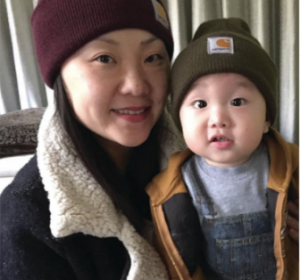
In speaking about his life, Lau Yang explains that there are two threads which define his life and he says, they are the key to understanding him. He says “my life is not important. It is my wife’s life that is important,” and he adds “and the story of how I got here is pretty interesting.” So, what about those two threads, woven together over time, that have made Lau Yang who he is?
Lau was born in 1976 in a refugee camp in Thailand. His family – father, mother, and five sisters had fled their home in Laos, where they were born, to escape the intense bombing conducted by the United States in what became known as The Secret War. (see Footnote 1)
Lau and his family are Hmong (moan) people, (see footnote 2) native to China. The movement of the Hmong out of the refugee camps was overseen by the United Nations and other international rescue organizations.
The events that made it possible for Lau to be in America today comprise quite a story involving both the CIA and the Catholic Church.
Lau’s grandfather was a shaman, a spiritual healer and physician. He was treating his daughter who was very ill, but she was not responding. At that point the grandfather became acquainted with a French missionary who told him he would be able to provide medical care that would make his daughter well again. Lau’s grandfather wagered a bet with the French missionary. He would convert to Catholicism if his daughter was cured. She was cured, and he did become a convert. He was the first in Lau’s family to become Catholic. Soon after, one of Lau’s cousins also converted and became the third youngest person to become a deacon in the Catholic Church. Another cousin, who became Catholic, was able to make his way to France where he attended school. There he got a job as an interpreter for Jerry Daniels, the American CIA liaison officer, who was attempting to facilitate the evacuation of about 50,000 refugees to the United States. The connection between Daniels and Lau’s cousin had been a vital factor in getting Lau’s family out. One of Lau’s uncles was among those evacuated to the United States and he ended up living in Kentucky. He then became the sponsor for Lau’s family, which enabled Lau’s entire family to leave the refugee camp and establish residence in Kentucky. In the meantime the cousin, who was the interpreter for the CIA agent, ended up living in Illinois, and he took in the entire family (mom, dad, 5 daughters and the 4 year old Lau). Both Lau’s parents ultimately found jobs and were able to support their family. Lau’s father died 15 years ago, but his mother is still alive and living in Madison, WI.
Lau has a degree from the University of Milwaukee, but he says, “I didn’t really understand what it was all about.” He explains that he lacked direction, had no role models or specific goals. He spent 15-20 years working in the television industry, mostly in the sales area, but he is now doing what he considers to be the most important work of his life, which is caring for his son, Andre, who will be 3 years old this November 11th. Andre was diagnosed with moderate autism when he was 18 months old. Dre, as Lao and his wife call Andre, does not respond to spoken words. Lau and his wife Dawn have become involved with the Spectrum program and the early elementary program here in Ann Arbor. Lau says that without insurance, it would cost about $45,000 a year for Dre’s treatment programs.
Dawn, Lau’s wife, represents the second of the two threads that have interwoven with Lau’s amazing journey from refugee camp to America. Lau emphasizes the point that without Dawn and her abilities he would be nowhere. Life would be extremely difficult. They met when she was just 19. He was in his early 20s. Dawn is also of the Hmong people and she and Lau met at a costume fashion show in Madison, Wisconsin. As Lau puts it, “I just spotted her.” Dawn went on to major in Fashion Design at Mt. Mary College in Milwaukee. At the time her father was extremely displeased with her choice of major. He echoed what many who emigrated to America believed – that if you’re not a doctor, a lawyer, a teacher, you’re nothing. He thought she should have studied something “more serious.” Ironically, today Dawn is the Design Manager for Carhart Work Clothes, a product that had always been the choice of, guess who,?Her father! She is now in charge of design for all clothing at Carhart, based in Dearborn, Michigan. Lau says she “works for an amazing company,” Lau and his wife have excellent insurance and adequate income to take care of Dre. Dawn’s career has made it possible for Lau to stay home and care for his son. He takes Dre to therapy in the morning, picks him up and spends the day with him. He says “we are lucky.” Dawn’s job requires some traveling so Lau’s parental responsibilities are very great. Today Dawn’s father could not be more proud of her. Does she allow her dad a discount on his Carhart clothing? That did not come up in our interview.
Lau says of Dawn, “she is truly living the American Dream and I owe everything to her. I’m a stay at home dad and I have the best job in the world. I live in the best city in the United States, and I’m part of the best sport community – pickle ball at the Meri Lou Murray Recreation Center.”
Lau just began playing pickle ball earlier this year. He says he had played some basketball, but when he first showed up at MLM to play he “saw a lot of guys much taller than me.” And he also noticed the pickle ball players having a lot of fun. He says the appealing thing about pickle ball is the “community of people.” As far as the most challenging aspect of pickle ball is concerned, Lausays “you know, I don’t even think about that.” He comes mainly for exercise and enjoyment of the people, but does concede that he pays some attention to working on footwork and stroke.
Lau Yang is 41 years old.
Footnote 1
In 1964, as more communist forces from North Vietnam began infiltrating South Vietnam the United States began a bombing program in Laos to interdict supplies going from Communist North Vietnam to their growing number of forces in South Vietnam. This supply route which ran mostly through the kingdoms of Laos and Cambodia was dubbed the Ho Chi Min Trail (named for the leader of North Vietnam). As the U.S. bombing of Laos was intense, thousands of Laotian civilians fled the country, Lao’s family among them. His father, a farmer, his mother and 5 sisters made it to Thailand and the refugee camp there.
From 1964 to 1973, the U.S. dropped more than two million tons of ordnance on Laos during 580,000 bombing missions – equal to a planeload of bombs every 8 minutes, 24 hours a day, for 9 years – making Laos the most heavily bombed country per capita in history. Up to a third of the bombs dropped did not explode, leaving Laos contaminated with vast quantities of unexploded ordinance (UX0) Over 20,000 people have been killed or injured by UXO in Laos since the bombing ceased.
The CIA and the French recruited thousands of Hmong people in Laos to fight against forces from north and south Vietnam and the communist Pathet Lao insurgents. This CIA operation is known as the Secret War
Footnote 2 –
The Hmong people originated near the Yellow and Yangtze Rivers in China. They are known as industrious farmers and are credited with being among the first people to cultivate rice and to spread this staple throughout Asia. Over centuries conflicts between the Hmong people and Imperial China led a mass exodus to Laos, Burma, and Thailand. Lau’s great grandparents moved to Laos to escape persecution. But even the Laotians oppressed the Hmong demanding one kilo of opium per household, taking away livestock and money from them. Some parents even had to sell their children to pay the taxes. Some parents were so upset they committed suicide by taking poison. WWII split the Hmong people about 60% remained loyal to the Royal Laotian government while the rest joined the communists.
